Here are my favorite poems about royalty categorized:
- Short poems about kings
- Poems about kings and queens
- Powerful queen poems
- Famous poems about kings
- Beautiful queen poems
So if you want the best poems about royalty, then you’re in the right place.
Let’s dive into it!

Ravishing Poems About Royalty
Prepare to be swept away by a regal collection of poems that unveils the majestic world of royalty in all its splendor.
Engross yourself in the enchanting allure of concise and mesmerizing short poems that transport you to the realm of kings, while indulging in the resplendent beauty and commanding grace of queenly verses that reign supreme.
Discover the opulence of crowns, the magnetic pull of thrones, and the timeless legacy of royalty as you embark on a poetic journey fit for both kings and queens.
This extraordinary anthology beckons you to embrace the realm of regality, where every line embodies the grandeur and allure of royal magnificence.
Let’s jump right in!
My #1 Favorite Poem About Royalty

“Lady of England” by George Pope Morris
Lady of England—o’er the seas
Thy name was borne on every breeze,
Till all this sunset clime became
Familiar with Victoria’s name.
Though seas divide us many miles,
Yet, for the Queen of those fair isles,
Which gave our fathers birth, there roves
A blessing from this Land of Groves.
Our Fatherland!—Fit theme for song!
When thou art named, what memories throng!
Shall England cease our love to claim?
Not while our language is the same.
Scion of kings! so live and reign,
That, when thy nation’s swelling strain
Is breathed amid our forests green,
We too may sing, “God save the Queen!”
Short Poems About Kings

“Kings in Legends” by Rainer Maria Rilke (Jessie Lemont, Translator)
Kings in old legends seem
Like mountains rising in the evening light.
They blind all with their gleam,
Their loins encircled are by girdles bright,
Their robes are edged with bands
Of precious stones—the rarest earth affords—
With richly jeweled hands
They hold their slender, shining, naked swords.
“Royal Prayer” by Johann Wolfgang von Goethe
Ha, I am the lord of earth! The noble,
Who’re in my service, love me.
Ha, I am the lord of earth! The noble,
O’er whom my sway extendeth, love I.
Oh, grant me, God in Heaven, that I may ne’er
Dispense with loftiness and love!
“King Cole” by Walter Crane
Old King Cole was a merry old soul,
And a merry old soul was he;
He called for his pipe, and he called for his bowl,
And he called for his fiddlers three.
Ev’ry fiddler had a fiddle,
And a very fine fiddle had he.
Tweedle dee, tweedle dee, tweedle dee, tweedle dee,
Tweedle dee, tweedle dee, went the fiddlers three,
O there’s none so rare as can compare
With King Cole and his fiddlers three.

“King Arthur” by Walter Crane
1.
When good King Arthur ruled this land,
He was a goodly king–
He stole three pecks of barley-meal,
To make a bag pudding.
2.
A bag pudding the Queen did make,
And stuffed it well with plums,
And in it put great lumps of fat
As big as my two thumbs.
3.
The King and Queen did eat thereof,
And noblemen beside,
And what they could not eat that night
The Queen next morning fried.
“The King Of Sweden” by William Wordsworth
The Voice of song from distant lands shall call
To that great King; shall hail the crowned Youth
Who, taking counsel of unbending Truth,
By one example hath set forth to all
How they with dignity may stand; or fall,
If fall they must. Now, whither doth it tend?
And what to him and his shall be the end?
That thought is one which neither can appal
Nor cheer him; for the illustrious Swede hath done
The thing which ought to be; is raised ‘above’
All consequences: work he hath begun
Of fortitude, and piety, and love,
Which all his glorious ancestors approve:
The heroes bless him, him their rightful son.
“King Trisanku” by Henry Wadsworth Longfellow
Viswamitra the Magician,
By his spells and incantations,
Up to Indra’s realms elysian
Raised Trisanku, king of nations.
Indra and the gods offended
Hurled him downward, and descending
In the air he hung suspended,
With these equal powers contending.
Thus by aspirations lifted,
By misgivings downward driven,
Human hearts are tossed and drifted
Midway between earth and heaven.

“Kings” by Robert Herrick
Men are not born kings, but are men renown’d;
Chose first, confirm’d next, and at last are crown’d.
“Kings” by Alfred Joyce Kilmer (Joyce)
The Kings of the earth are men of might,
And cities are burned for their delight,
And the skies rain death in the silent night,
And the hills belch death all day!
But the King of Heaven, Who made them all,
Is fair and gentle, and very small;
He lies in the straw, by the oxen’s stall —
Let them think of Him to-day!
“King’s Cross Station” by Gilbert Keith Chesterton
This circled cosmos whereof man is god
Has suns and stars of green and gold and red,
And cloudlands of great smoke, that range o’er range
Far floating, hide its iron heavens o’erhead.
God! shall we ever honour what we are,
And see one moment ere the age expire,
The vision of man shouting and erect,
Whirled by the shrieking steeds of flood and fire?
Or must Fate act the same grey farce again,
And wait, till one, amid Time’s wrecks and scars,
Speaks to a ruin here, ‘What poet-race
Shot such cyclopean arches at the stars?’
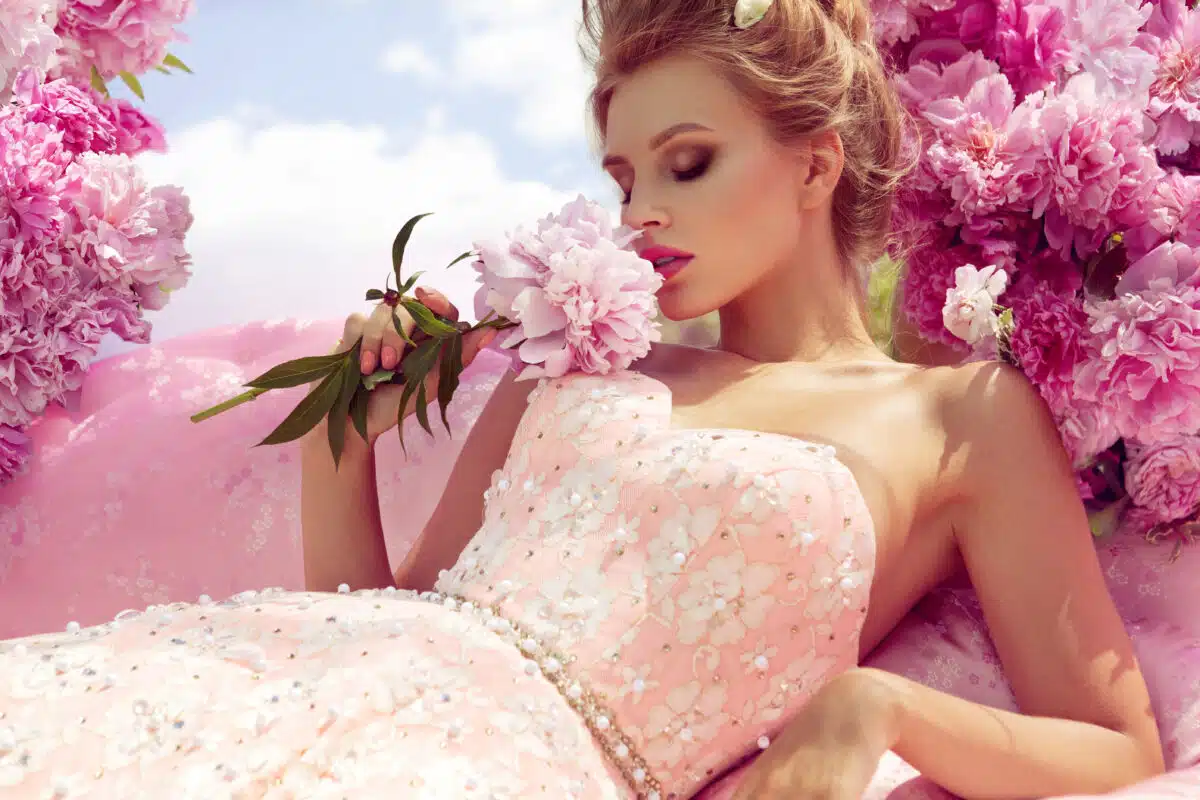
“The King’s Gift” by Jean Blewett
TO E. S. R.
The new year coming to us with swift feet
Is the King’s gift,
And all that in it lies
Will make our lives more rounded and complete.
It may be laughter,
May be tear-filled eyes;
It may be gain of love,
Or loss of love;
It may be thorns, or bloom and breath of flowers,
The full fruition of these hopes that move –
It may be what will break these hearts of ours,
What matter? ‘Tis the great gift of the King –
We do not need to fear what it may bring.
“The King’s Sabbath” by Archibald Lampman
Once idly in his hall king Olave sat
Pondering, and with his dagger whittled chips;
And one drew near to him with austere lips,
Saying, “To-morrow is Monday,” and at that
The king said nothing, but held forth his flat
Broad palm, and bending on his mighty hips,
Took up and mutely laid thereon the slips
Of scattered wood, as on a hearth, and gat
From off the embers near, a burning brand.
Kindling the pile with this, the dreaming Dane
Sat silent with his eyes set and his bland
Proud mouth, tight-woven, smiling, drawn with pain,
Watching the fierce fire flare, and wax, and wane,
Hiss and burn down upon his shrivelled hand.
“To The King’s Most Excellent Majesty” by Phillis Wheatley
Your subjects hope, dread Sire—
The crown upon your brows may flourish long,
And that your arm may in your God be strong!
O may your sceptre num’rous nations sway,
And all with love and readiness obey!
But how shall we the British king reward!
Rule thou in peace, our father, and our lord!
Midst the remembrance of thy favours past,
The meanest peasants most admire the last*
May George, beloved by all the nations round,
Live with heav’ns choicest constant blessings crown’d!
Great God, direct, and guard him from on high,
And from his head let ev’ry evil fly!
And may each clime with equal gladness see
A monarch’s smile can set his subjects free!
Poems About Kings and Queens
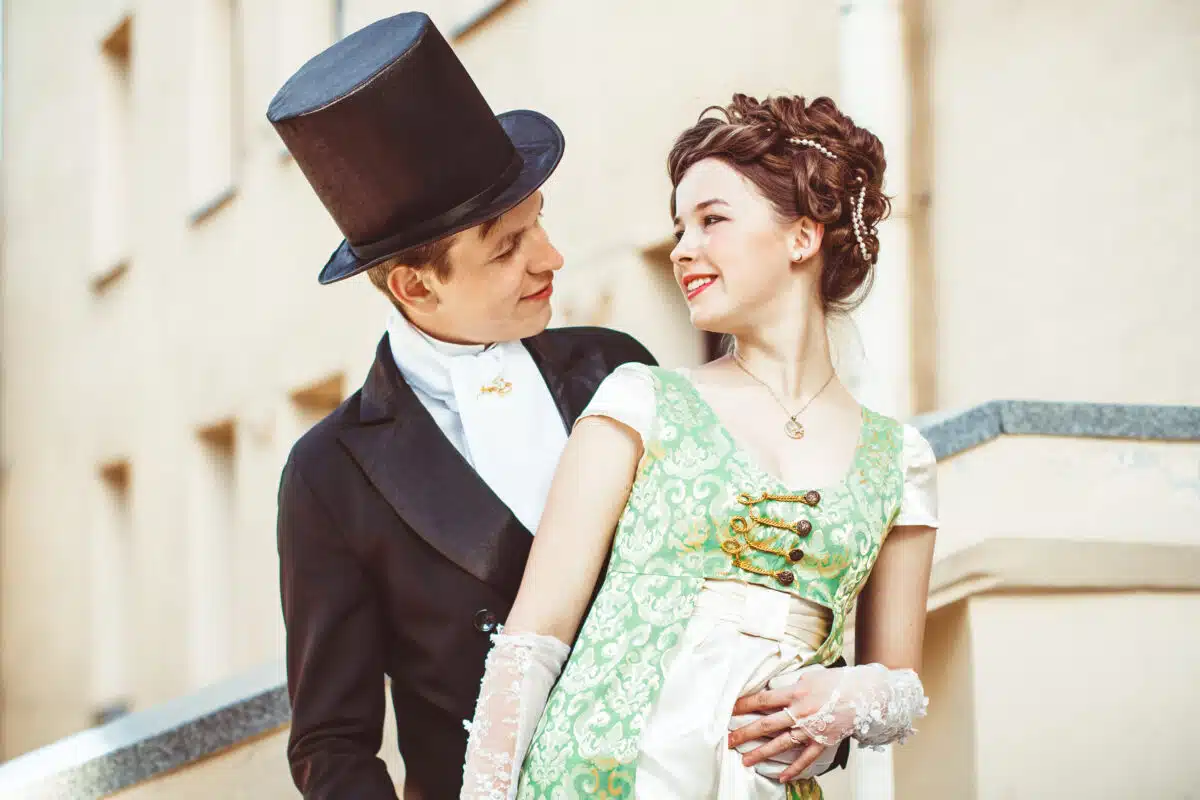
“A King in Exile” by Victor James Daley
O the Queen may keep her golden
Crown and sceptre of command!
I would give them both twice over
To be King of Babyland.
Sure, it is a wondrous country
Where the beanstalks grow apace,
And so very near the moon is
You could almost stroke her face.
And the dwellers in that country
Hold in such esteem their King,
They believe that if he chooses
He can do—just anything!
And, although his regal stature
May be only four-feet-ten,
Think him tallest, strongest, bravest,
Noblest, wisest, best of men.
Ah, how fondly I remember
The good time serene and fair,
In the bygone years when I, too,
Was a reigning monarch there!
But my subjects they discrowned me
When they’d older, colder, grown;
And they took away my sceptre,
And upset my royal throne.
Yet, although a King in Exile,
Without subjects to command,
I am glad at heart to think I
Once was King of Babyland.
“King Cotton” by George Pope Morris
Old Cotton is king, boys–aha!
With his locks so fleecy and white!
He shines among kings like a star!
And his is the sceptre of right,
Boys, of right,
And his is the sceptre of right!
Old Cotton, the king, has no care,
No queen, and no heir to his throne,
No courtiers, his triumphs to share,
He rules his dominions alone,
Boys, alone!
He rules his dominions alone!
Old Cotton, the merry old boy!–
Like smoke from the pipe in his mouth
His years glide away in their joy,
At home, in the warm sunny south,
Boys, the south,
At home, in the warm sunny south!
Old Cotton will pleasantly reign
When other kings painfully fall,
And ever and ever remain
The mightiest monarch of all,
Boys, of all,
The mightiest monarch of all!
Then here’s to old Cotton, the king!
His true loyal subjects are we:
We’ll laugh and we’ll quaff and we’ll sing,
A jolly old fellow is he,
Boys, is he,
A jolly old fellow is he!
“The King’s Consort” by Emily Pauline Johnson
I
Love, was it yesternoon, or years agone,
You took in yours my hands,
And placed me close beside you on the throne
Of Oriental lands?
The truant hour came back at dawn to-day,
Across the hemispheres,
And bade my sleeping soul retrace its way
These many hundred years.
And all my wild young life returned, and ceased
The years that lie between,
When you were King of Egypt, and The East,
And I was Egypt’s queen.
II
I feel again the lengths of silken gossamer enfold
My body and my limbs in robes of emerald and gold.
I feel the heavy sunshine, and the weight of languid heat
That crowned the day you laid the royal jewels at my feet.
You wound my throat with jacinths, green and glist’ning serpent-wise,
My hot, dark throat that pulsed beneath the ardour of your eyes;
And centuries have failed to cool the memory of your hands
That bound about my arms those massive, pliant golden bands.
You wreathed around my wrists long ropes of coral and of jade,
And beaten gold that clung like coils of kisses love-inlaid;
About my naked ankles tawny topaz chains you wound,
With clasps of carven onyx, ruby-rimmed and golden bound.
But not for me the Royal Pearls to bind about my hair,
“Pearls were too passionless,” you said, for one like me to wear,
I must have all the splendour, all the jewels warm as wine,
But pearls so pale and cold were meant for other flesh than mine.
But all the blood-warm beauty of the gems you thought my due
Were pallid as a pearl beside the love I gave to you;
O! Love of mine come back across the years that lie between,
When you were King of Egypt – Dear, and I was Egypt’s Queen.

From “The Faerie Queene” by Edmund Spenser
XLIII
The forlorne Maiden, whom your eyes have seene
The laughing stocke of fortunes mockeries,
Am th’ only daughter of a King and Queene,
Whose parents deare, whilest equal destinies
Did runne about, and their felicities
The favourable heavens did not envy,
Did spread their rule through all the territories,
Which Phison and Euphrates floweth by,
And Gehons golden waves doe wash continually.
“Queen Victoria” by Joseph Horatio Chant
We do not sing of vast domain–
Empires as vast as ours are seen,
And o’er their millions despots reign;
We sing the virtues of our Queen.
We think of her when but a maid
The message came, “the King is dead!”
And at her feet a crown was laid;
In deep distress of mind, she said:
“In my behalf I ask your prayers.”
Then falling on her knees to pray,
She told the Lord her fears and cares,
And sought from Him strength for her day.
He seemed to say, “Child, do not fear;
I will uphold thee with my hand,
And I will make thy pathway clear,
Thy throne establish in the land.”
‘Twas thus began Victoria’s reign,
And God has made her throne secure;
Her enemies will plot in vain,
For it is destined to endure.
But while she sits on regal throne,
And acts full well a regal part,
She reigns not on the throne alone,
She reigns to-day in England’s heart.
Her queenly heart with pity throbs
For every suffering subject’s woes;
In lowly cot, ‘midst groans and sobs,
She like a ray of sunshine goes.
As sweet perfume by outward gale
Is carried far o’er sea and land,
So queenly virtues never fail
To touch true hearts on every strand.
In every land, her name is blest;
She is beloved by old and young;
From pole to pole, from east to west,
The song, “God save the Queen,” is sung.
Through sorrows deep her path has led,
And tender ties have sundered been;
Bright hopes were buried with her dead,
And love has kept their memory green.
By grief secluded from the world,
Her path through lonely years she trod,
And oft her life has been imperilled;
But she has leaned upon her God.
And as she wept a nation’s tears
In heartfelt sympathy were shed;
Forgetting their own griefs and biers,
They wept beside the royal dead.
With grateful hearts her natal day
We loyal Britons hail again,
And join with millions as they pray
“God bless our Queen! Long may she reign!”
And when at last life’s glories fade,
And robes of state are laid aside,
When nature’s debt to dust is paid
And charms no more earth’s pomp and pride,
May angel bands her spirit bear
Up to the palace of her King,
Where she a fadeless crown shall wear,
And the new song with rapture sing.
From “The Faerie Queene” by Edmund Spenser
V
So pure and innocent, as that same lambe,
She was in life and every vertuous lore,
And by descent from Royall lynage came
Of ancient Kings and Queenes, that had of yore
Their scepters stretcht from East to Westerne shore,
And all the world in their subjection held;
Till that infernall feend with foule uprore
Forwasted all their land, and them expeld:
Whom to avenge, she had this Knight from far compeld.
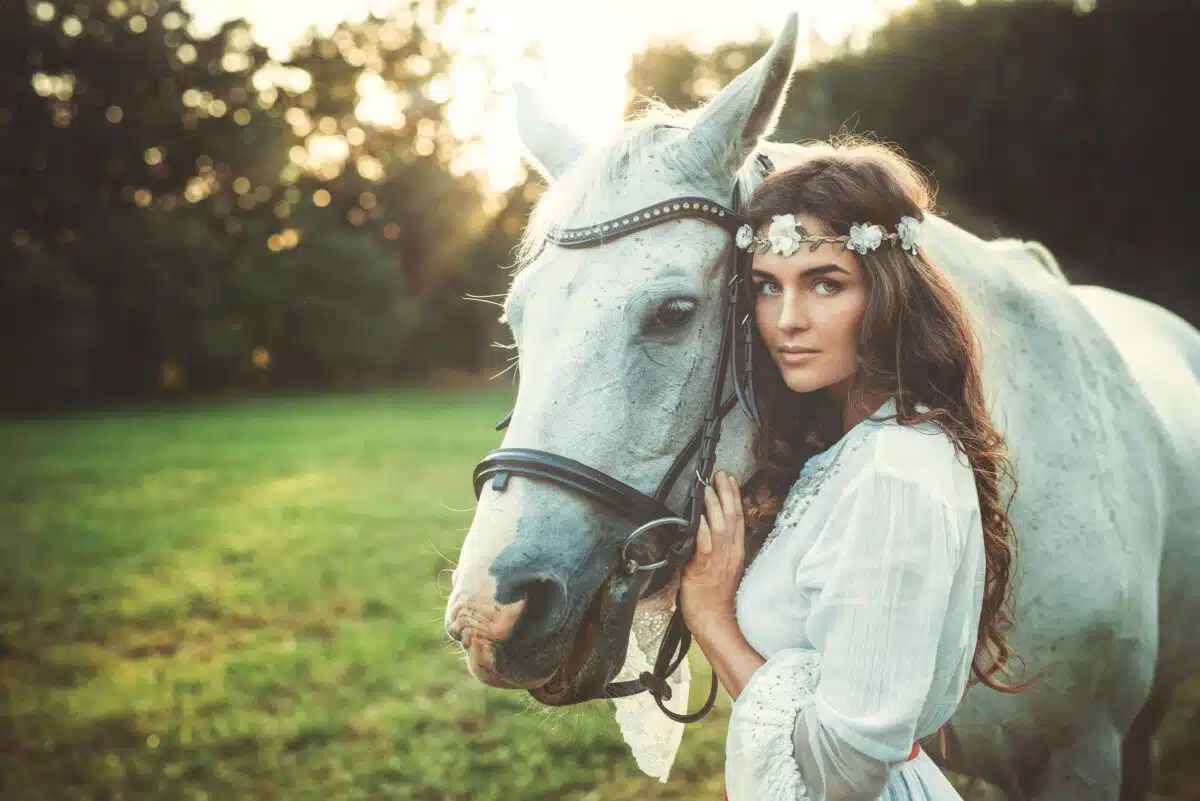
“The Queen’s Last Ride” by Ella Wheeler Wilcox
The Queen is taking a drive to-day,
They have hung with purple the carriage-way,
They have dressed with purple the royal track
Where the Queen goes forth and never comes back.
Let no man labour as she goes by
On her last appearance to mortal eye,
With heads uncovered let all men wait
For the Queen to pass, in her regal state.
Army and Navy shall lead the way
For that wonderful coach of the Queen’s to-day.
Kings and Princes and Lords of the land
Shall ride behind her, a humble band,
And over the city and over the world
Shall the Flags of all Nations be half-mast-furled,
For the silent lady of royal birth
Who is riding away from the Courts of earth;
Riding away from the world’s unrest
To a mystical goal, on a secret quest.
Tho’ in royal splendour she drives through town,
Her robes are simple, she wears no crown:
And yet she wears one, for widowed no more,
She is crowned with the love that has gone before,
And crowned with the love she has left behind
In the hidden depths of each mourner’s mind.
Bow low your heads–lift your hearts on high–
The Queen in silence is driving by!
Powerful Queen Poems
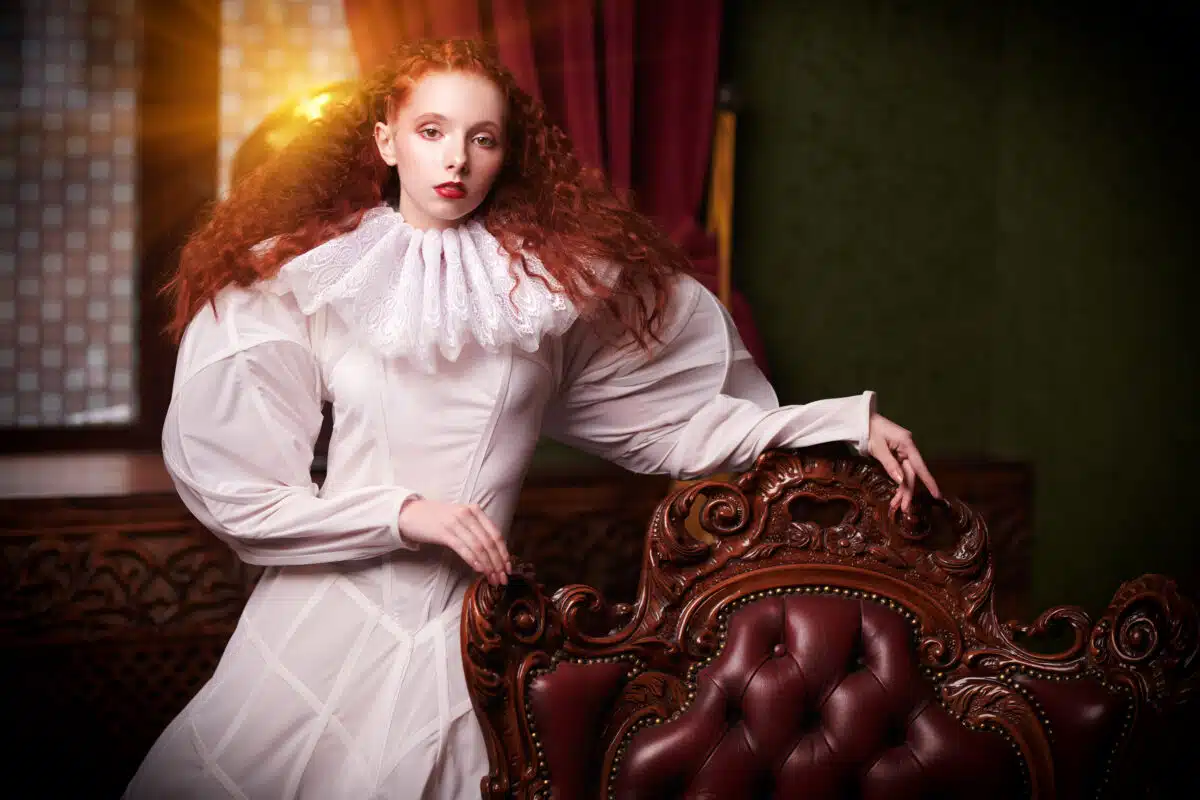
“Queen And Huntress” by Ben Jonson
Queen and huntress, chaste and fair,
Now the sun is laid to sleep,
Seated in thy silver chair
State in wonted manner keep:
Hesperus entreats thy light,
Goddess excellently bright.
Earth, let not thy envious shade
Dare itself to interpose;
Cynthia’s shining orb was made
Heaven to clear when day did close:
Bless us then with wished sight,
Goddess excellently bright.
Lay thy bow of pearl apart
And thy crystal-shining quiver;
Give unto the flying hart
Space to breathe, how short soever:
Thou that mak’st a day of night,
Goddess excellently bright.
“Queen Elizabeth Speaks” by Alfred Joyce Kilmer (Joyce)
My hands were stained with blood, my heart was proud and cold,
My soul is black with shame . . . but I gave Shakespeare gold.
So after aeons of flame, I may, by grace of God,
Rise up to kiss the dust that Shakespeare’s feet have trod.
“The Noble Woman” by W. M. MacKeracher
A woman on an empire’s throne
Has sat in queenly pride,
And swayed the sceptre of her power
O’er land and ocean wide:
A crown of gold adorned the head
That held a nation’s fate,
And courtly knights and princely peers
Did on her bidding wait.
A woman too in ancient days
Has borne the warrior’s brand,
And by heroic deed performed
Has saved her native land.
She too has sung inspiring songs,
And told entrancing tales;
Has softened and has swayed the mind
Where bolder genius fails.
But nobler far than thronë”d queen,
Or heroine of fame,
Or she who by her potent pen
Has won illustrious name,
Is she who seeks the needy out,
Nor scorns the wretched’s door,
But, with compassion Christlike, loves
To help the humble poor.

“Queen Henrietta Maria” by Oscar Fingal O’Flahertie Wills Wilde
To Ellen Terry
In the lone tent, waiting for victory,
She stands with eyes marred by the mists of pain,
Like some wan lily overdrenched with rain:
The clamorous clang of arms, the ensanguined sky,
War’s ruin, and the wreck of chivalry
To her proud soul no common fear can bring:
Bravely she tarrieth for her Lord the King,
Her soul a-flame with passionate ecstasy.
O Hair of Gold! O Crimson Lips! O Face
Made for the luring and the love of man!
With thee I do forget the toil and stress,
The loveless road that knows no resting place,
Time’s straitened pulse, the soul’s dread weariness,
My freedom, and my life republican!
“Queen Mab” by Thomas Hood
A little fairy comes at night,
Her eyes are blue, her hair is brown,
With silver spots upon her wings,
And from the moon she flutters down.
She has a little silver wand,
And when a good child goes to bed
She waves her wand from right to left,
And makes a circle round its head.
And then it dreams of pleasant things,
Of fountains filled with fairy fish,
And trees that bear delicious fruit,
And bow their branches at a wish;
Of arbors filled with dainty scents
From lovely flowers that never fade;
Bright flies that glitter in the sun,
And glow-worms shining in the shade.
And talking birds with gifted tongues,
For singing songs and telling tales,
And pretty dwarfs to show the way
Through fairy hills and fairy dales.
But when a bad child goes to bed,
From left to right she weaves her rings,
And then it dreams all through the night
Of only horrid things!
Then lions come with glaring eyes,
And tigers growl, a dreadful noise,
And ogres draw their cruel knives
To shed the blood of girls and boys.
Then stormy waves rush on to drown,
Or raging flames come scorching round,
Fierce dragons hover in the air,
And serpents crawl along the ground.
Then wicked children wake and weep,
And wish the long black gloom away;
But good ones love the dark, and find
The night as pleasant as the day.
“The Queen Of Fairy Land” by Rudyard Kipling
“I have a thousand men,” said he,
“To wait upon my will;
And towers nine upon the Tyne,
And three upon the Till.”
“And what care I for your men? ” said she,
“Or towers from Tyne to Till?
Sith you must go with me,” said she,
“To wait upon my will.
And you may lead a thousand men
Nor ever draw the rein,
But before you lead the Fairy Queen
‘Twill burst your heart in twain.”
He has slipped his foot from the stirrup-bar,
The bridle from his hand,
And he is bound by hand and foot
To the Queen of Fairy Land.
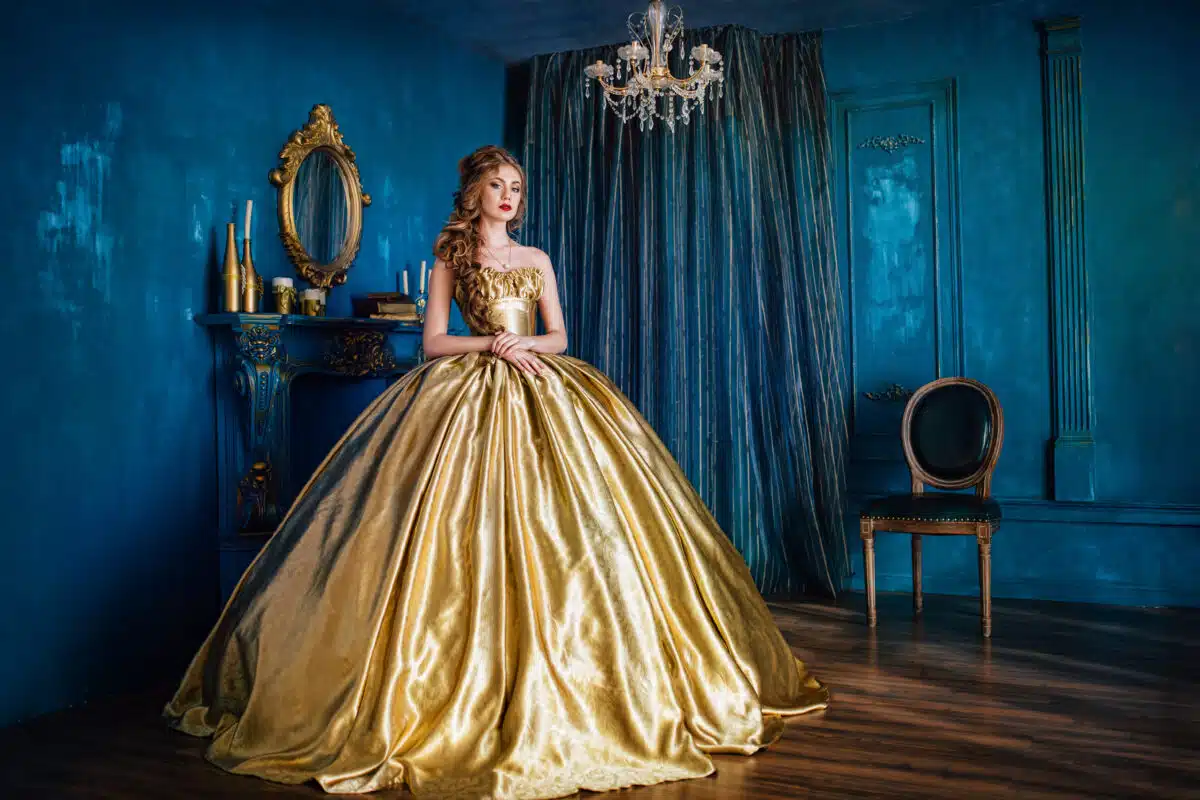
From “Queen Victoria” by Jean Blewett
The sunshine streaming through the stain’d glass
Touched her with rosy colors as she stood,
The maiden Queen of all the British realm,
In the old Abbey on that soft June day.
Youth shone within her eyes, where God had set
All steadfastness, and high resolve, and truth;
Youth flushed her cheek, dwelt on the smooth white brow
Whereon the heavy golden circlet lay.
The ashes of dead kings, the history of
A nation’s growth, of strife, and victory,
The mighty past called soft through aisle and nave:
“Be strong, O Queen; be strong as thou art fair!”
A virgin, white of soul and unafraid,
Since back of her was God, and at her feet
A people loyal to the core, and strong,
And loving well her sweetness and her youth.
“Queen ov Skircoit Green” by John Hartley
Have yo seen mi bonny Mary,
Shoo lives at Skircoit Green;
An old fowk say a fairer lass
Nor her wor nivver seen.
An th’ young ens say shoo’s th’ sweetest flaar,
‘At’s bloomin thear to-day;
An one an all are scared to deeath,
Lest shoo should flee away.
Shoo’s health an strength an beauty too,
Shoo’s grace an style as weel:
An what’s moor precious far nor all,
Her heart is true as steel.
Shoo’s full ov tenderness an love,
For onny in distress;
Whearivver sorrows heaviest prove,
Shoo’s thear to cheer an bless.
Her fayther’s growin old an gray,
Her mother’s wellny done;
But in ther child they find a stay,
As life’s sands quickly run.
Her smilin face like sunshine comes,
To chase away ther cares,
An peeace an comfort allus dwells,
In that dear hooam ov theirs.
Each Sundy morn shoo’s off to schooil,
To taich her Bible class;
An meets a smilin welcome,
From ivvery lad an lass;
An when they sing some old psalm tune,
Her voice rings sweet an clear,
It saands as if an angel’s tongue,
Had joined in worship thear.
Aw sometimes see her safely hooam,
An oft aw’ve tried to tell,
That precious saycret ov a hooap
‘At in mi heart does dwell.
But when aw’ve seen the childlike trust,
‘At glances throo her e’e,
To spaik ov love aw nivver durst; –
Shoo’s far too gooid for me.
But to grow worthy ov her love,
Is what aw meean to try;
An time may my affection prove, –
An win her bye-an-bye.
Then aw shall be the happiest chap
‘At Yorksher’s ivver seen,
An some fine day aw’ll bear away,
The Queen ov Skircoit Green.
“Queens” by John Frederick Freeman
The red sun stared unwinking at the East
Then slept under a cloak of hodden gray;
The rimy fields held the last light of day,
A little tender yet. And I remember
How black against the pale and wintry west
Stood the confused great army of old trees,
Topping that lean, enormous-shouldered hill
With crossing lances shivering and then still.
I looked as one that sees
Queens passing by and lovelier than he dreamed,
With fringe of silver light following their feet,
And all those lances vail’d, and solemn Knights
Watching their Queens as with eyes grave and sweet
They left for the gray fields those airy heights.
Nothing had lovelier seemed–
Not April’s noise nor the early dew of June,
Nor the calm languid cow-eyed Autumn Moon,
Nor ruffling woods the greenest I remember–
Than this pale light and dark of cold December.
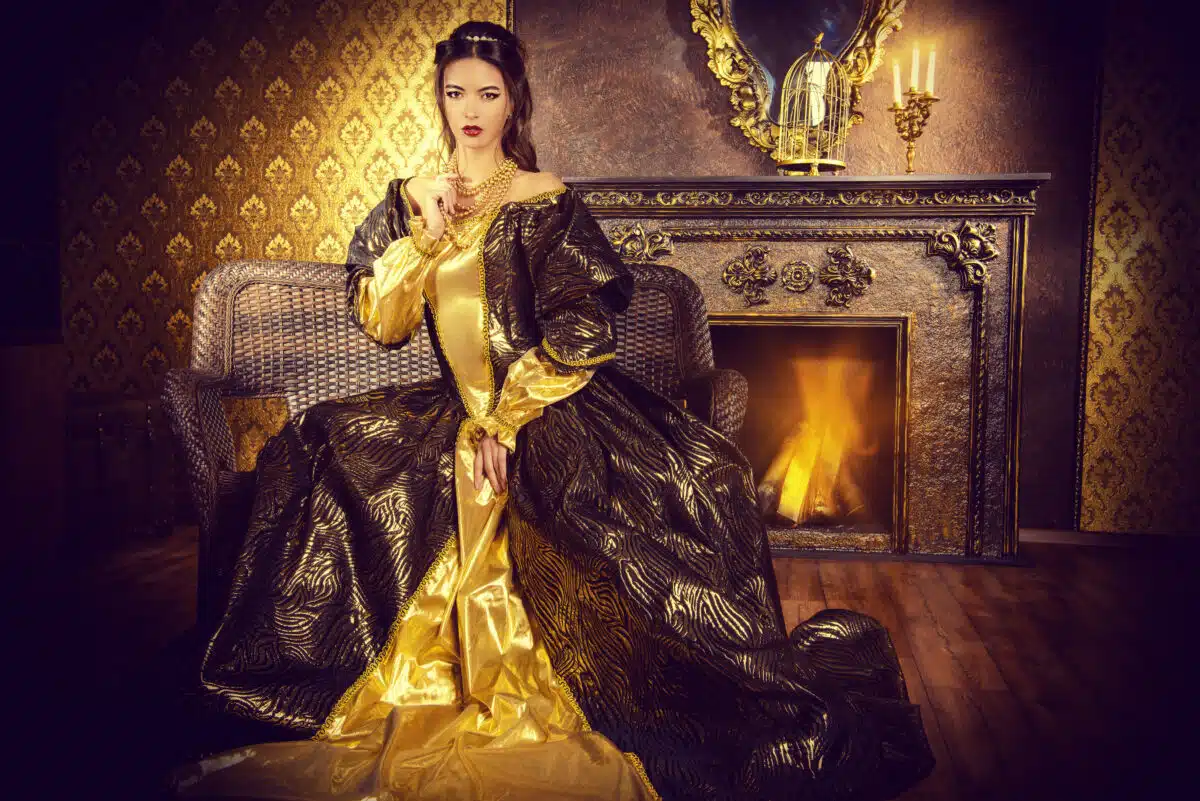
“On The Queen’s Jubilee” by Gideon Henry Mackenzie Read
We hail the Jubilee of our beloved Queen!
Whose peaceful reign has made her subjects glad!
Though, she has sorrowful bereavements seen—
Loss of her Royal Consort good-has made her sad
Death of her lov’d daughter, and her scholar son
Whose virtuous lives caused England to rejoice!
And nations mourned, when early set their sun,
And loudly praised them with united voice,
And prayed God to comfort and sustain
Our sorrowing monarch ! to her people dear!
Her heartfelt griefs to assuage-and ease her pain,
And wipe away the widowed mother’s tear.
And God did bless-and prosperous she has been,
Her government a blessing to our land!
And now, her crown worn fifty years is seen
Still brilliant untarnished! noble! grand!
And sits upon the brow of India’s Empress
Majestically and honours England’s Throne;
Heaven prosper still her realm-Victoria bless!
Of war and tumult, henceforth be there none.
“The Queen’s Men” by Rudyard Kipling
Valour and Innocence
Have latterly gone hence
To certain death by certain shame attended.
Envy, ah! even to tears!
The fortune of their years
Which, though so few, yet so divinely ended.
Scarce had they lifted up
Life’s full and fiery cup,
Than they had set it down untouched before them.
Before their day arose
They beckoned it to close,
Close in confusion and destruction o’er them.
They did not stay to ask
What prize should crown their task,
Well sure that prize was such as no man strives for;
But passed into eclipse,
Her kiss upon their lips,
Even Belphoebe’s, whom they gave their lives for!
From “The Arctic Queen” by Unknown
Oene, of all the chilly Arctics, queen,
Ascended to her everlasting throne
Built on the steadfast centre of the world,
And waited for the middle hour of night,
Now swiftly coming, to convene her court.
Set in an ocean of perpetual calm
Was the fair island honoured by her reign;
Slowly around her rolled the Frigid Zone,
Dim in the mystic moonlight far away,—
A silvery ring, circling her nearer realm
With the pale lustre of its snowy walls,
Defending from all storm and sudden change
The sea which bathed the island’s level shores.
She sat upon her throne, and none might tell
Whether her limbs the lambent lustre cast
Upon the pearls of which it was composed,
Or they cast beauty on her glowing form.
Around her feet a pavement spread, inlaid
Of squares of roseate sea-shells, set about
With purple gems, unknown in other lands;—
Thence, winding paths, sprinkled with golden sand,
Ran out, through bowers of flowers and fields of green
To meet the sea.
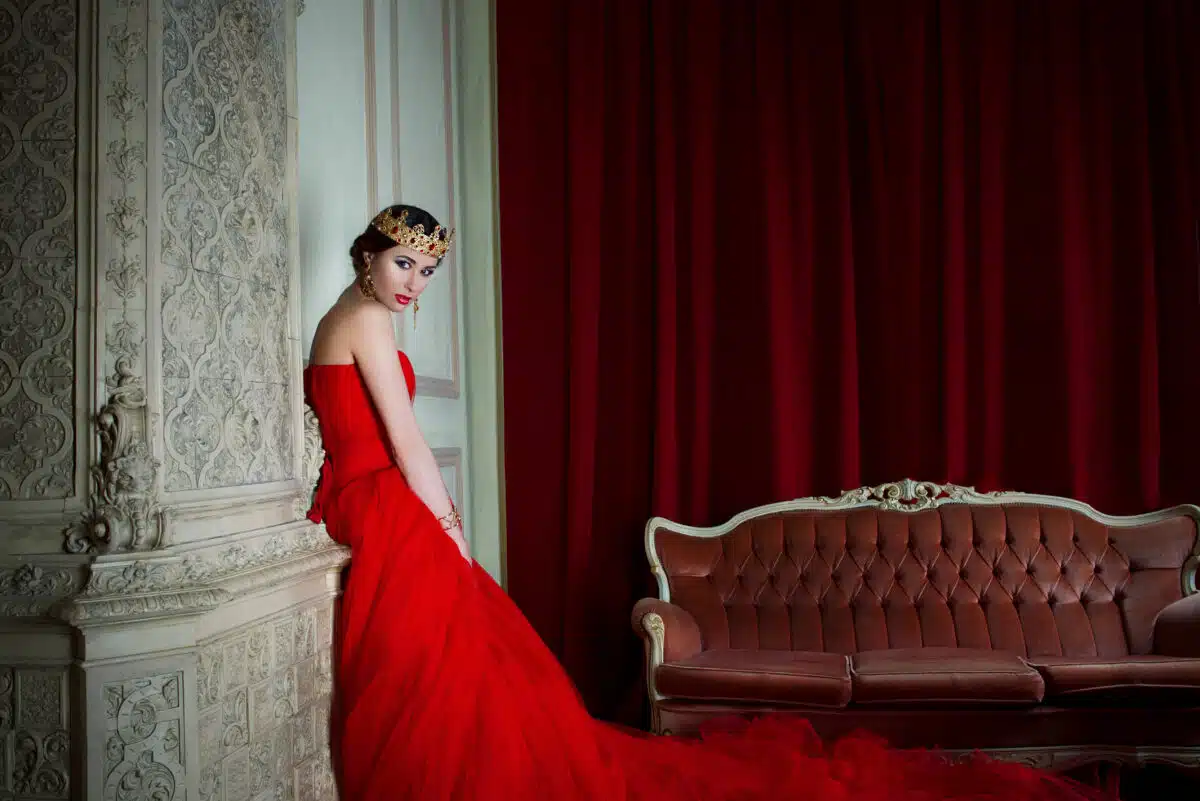
“Madness” by Rainer Maria Rilke (Jessie Lemont, Translator)
She thinks: I am—Have you not seen?
Who are you then, Marie?
I am a Queen, I am a Queen!
To your knee, to your knee!
And then she weeps: I was—a child—
Who were you then, Marie?
Know you that I was no man’s child,
Poor and in rags—said she.
And then a Princess I became
To whom men bend their knees;
To princes things are not the same
As those a beggar sees.
And those things which have made you great
Came to you, tell me, when?
One night, one night, one night quite late,
Things became different then.
I walked the lane which presently
With strung chords seemed to bend;
Then Marie became Melody
And danced from end to end.
The people watched with startled mien
And passed with frightened glance
For all know that only a Queen
May dance in the lanes: dance!…
“An Easter’s Message” by Mrs. Carrie W. Clifford
Now quivering to life, all nature thrills
At the approach of that triumphant queen,
Pink-fingered Easter, trailing robes of green
Tunefully o’er the flower-embroidered hills,
Her hair perfumed of myriad daffodils:
Upon her swelling bosom now are seen
The dream-frail lilies with their snowy sheen,
As lightly she o’erleaps the spring-time rills.
To black folk choked within the deadly grasp
Of racial hate, what message does she bring
Of resurrection and the hope of spring?
Assurance their death-stupor is a mask—
A sleep, with elements potential, rife,
Ready to burst full-flowered into life.
“The Negro Woman” by Andrea Razafkeriefo
Were it mine to select a woman
As queen of the hall of fame;
One who has fought the gamest fight
And climbed from the depths of shame;
I would have to give the sceptre
To the lowliest of them all;
She, who has struggled through the years,
With her back against the wall.
Wronged by the men of an alien race,
Deserted by those of her own;
With a prayer in her heart, a song on her lips
She has carried the fight alone.
In spite of the snares all around her;
Her marvelous pluck has prevailed
And kept her home together—
When even her men have failed.
What of her sweet, simple nature?
What of her natural grace?
Her richness and fullness of color,
That adds to the charm of her face?
Is there a woman more shapely?
More vigorous, loving and true?
Yea, wonderful Negro woman
The honor I’d give to you.

“Sappho: Splendor-throned Queen” by Sappho (Sir Edwin Arnold, Translator)
Splendor-throned Queen! immortal Aphrodite!
Daughter of Jove -Enchantress! I implore thee
Vex not my soul with agonies and anguish;
Slay me not, Goddess!
Come in thy pity —come, if I have prayed thee ;
Come at the cry of my sorrow ; in the old times
Oft thou hast heard and left thy father’s heaven,
Left the gold houses,
Yoking thy chariot. Swiftly did the doves fly,
Swiftly they brought thee, waving plumes of wonder
Waving their pale plumes all across the æther,
All down the azure!
Very soon they lighted. Then didst thou, Divine one,
Laugh a bright laugh from lips and eyes eternal,
Ask me, “What ailed me wherefore out of heaven
“Thus I had called thee?
“To Christina, Queen of Sweden” by William Cowper
Christina, maiden of heroic mien!
Star of the North! of northern stars the queen
Behold what wrinkles I have earn’d, and how
The iron casque still chafes my veteran brow,
While following fate’s dark footsteps, I fulfil
The dictates of a hardy people’s will.
But soften’d, in thy sight, my looks appear,
Not to all Queens or Kings alike severe.
From “Odyssey: Book XIII” by William Cowper
Farewell, O queen, a long farewell, till age
Arrive, and death, the appointed lot of all!
I go ! but be this people, and the king Alcinous,
and thy progeny, thy joy
Yet many a year beneath this glorious roof!
Famous Poems About Kings
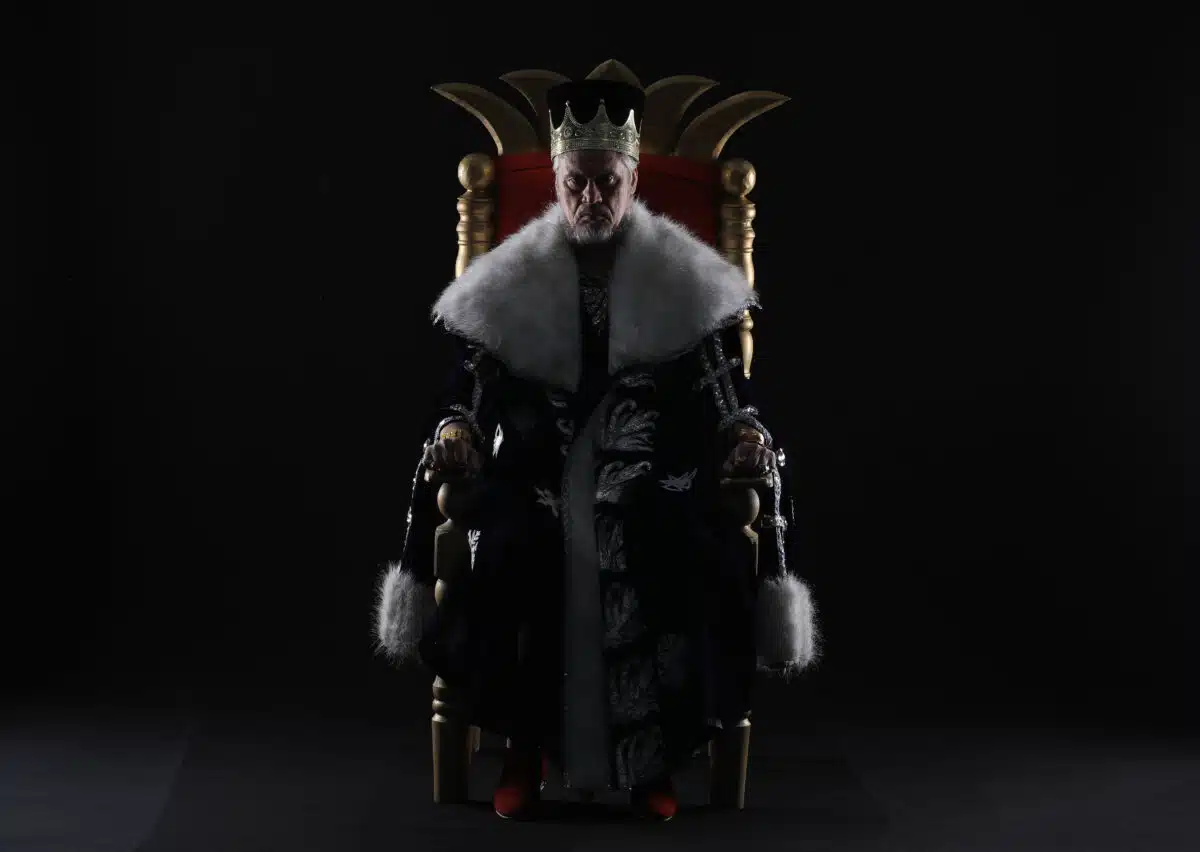
“King David” by Walter De La Mare
King David was a sorrowful man:
No cause for his sorrow had he;
And he called for the music of a hundred harps,
To ease his melancholy.
They played till they all fell silent:
Played-and play sweet did they;
But the sorrow that haunted the heart of King David
They could not charm away.
He rose; and in his garden
Walked by the moon alone,
A nightingale hidden in a cypress-tree
Jargoned on and on.
King David lifted his sad eyes
Into the dark-boughed tree-
”Tell me, thou little bird that singest,
Who taught my grief to thee?’
But the bird in no wise heeded
And the king in the cool of the moon
Hearkened to the nightingale’s sorrowfulness,
Till all his own was gone.
“King and No King” by William Butler Yeats
“Would it were anything but merely voice!”
The No King cried who after that was King,
Because he had not heard of anything
That balanced with a word is more than noise;
Yet Old Romance being kind, let him prevail
Somewhere or somehow that I have forgot,
Though he’d but cannon—Whereas we that had thought
To have lit upon as clean and sweet a tale
Have been defeated by that pledge you gave
In momentary anger long ago;
And I that have not your faith, how shall I know
That in the blinding light beyond the grave
We’ll find so good a thing as that we have lost?
The hourly kindness, the day’s common speech.
The habitual content of each with each
When neither soul nor body has been crossed.
From “The Faerie Queene” by Edmund Spenser
XLVII
There was that great proud king of Babylon,
That would compell all nations to adore,
And him as onely God to call upon,
Till through celestiall doome throwne out of dore,
Into an Oxe he was transform’d of yore:
There also was king Croesus,° that enhaunst
His hart too high through his great riches store;
And proud Antiochus,° the which advaunst
His cursed hand gainst God and on his altars daunst.
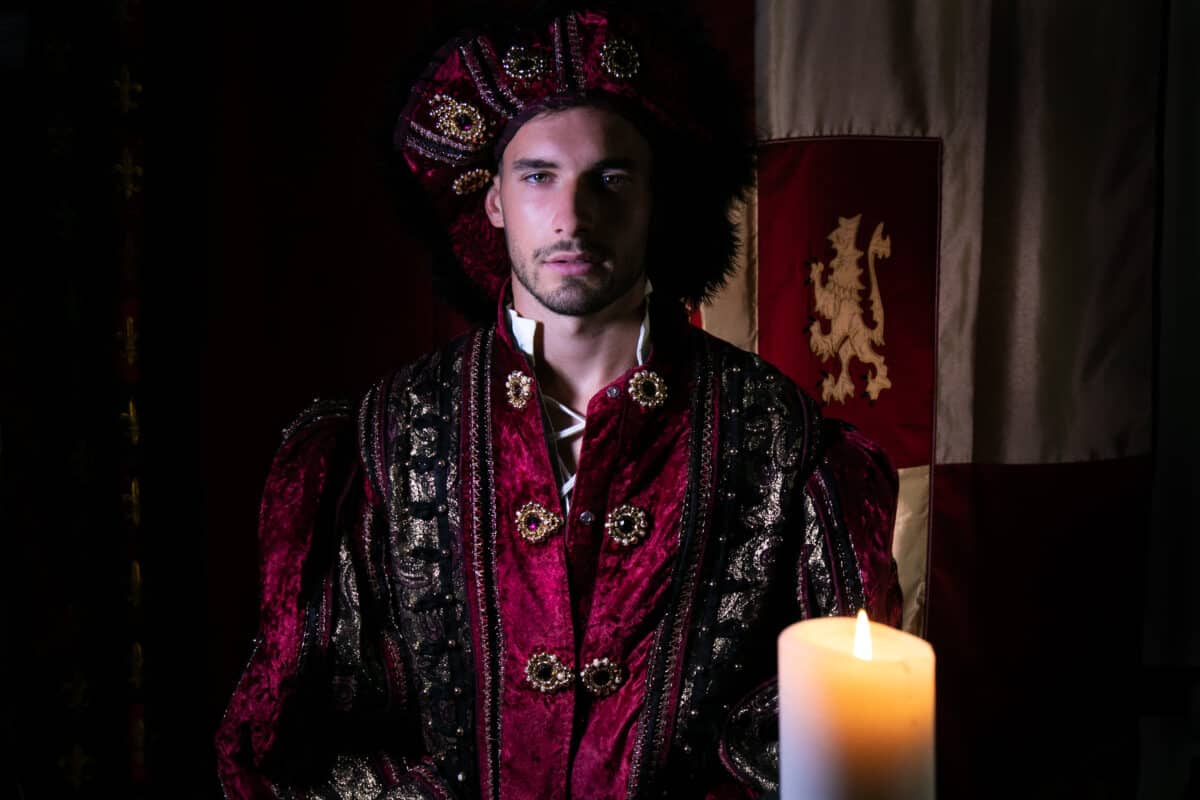
“The King” by Henry Lawson
Among the sons of Englishmen
Full many feel like real tears,
For, though he reigned but scarcely ten,
He bore the burden many years.
He lived the dead past doubly down,
He shamed, by manliness and truth,
The lies that beat about a crown,
And round a known man in his youth.
For he had lived as men have done
Since Adam’s time, to prove them true.
He proved it in his manhood’s prime,
And to the end, as strong men do.
And so he died, and, ever since,
And on through years the words shall ring:
“He lived a man, he lived a prince,
And died a gentleman and King.”
Unto the friends of his hot youth,
In his wise age, he still was true.
He showed, by steadfastness and truth,
What kings as well as men can do;
Till all was manlike or forgot,
Long years ere he found his release;
He made them loyal who were not,
He won respect, and kept the peace.
“The King” by Rudyard Kipling
“Farewell, Romance!” the Cave-men said;
“With bone well carved He went away,
Flint arms the ignoble arrowhead,
And jasper tips the spear to-day.
Changed are the Gods of Hunt and Dance,
And He with these. Farewell, Romance!”
“Farewell, Romance!” the Lake-folk sighed;
“We lift the weight of flatling years;
The caverns of the mountain-side
Hold him who scorns our hutted piers.
Lost hills whereby we dare not dwell,
Guard ye his rest. Romance, farewell!”
“The King Of England” by Henry John Newbolt, Sir
In that eclipse of noon when joy was hushed
Like the bird’s song beneath unnatural night,
And Terror’s footfall in the darkness crushed
The rose imperial of our delight,
Then, even then, though no man cried “He comes,”
And no man turned to greet him passing there,
With phantom heralds challenging renown
And silent-throbbing drums
I saw the King of England, hale and fair,
Ride out with a great train through London town.
Unarmed he rode, but in his ruddy shield
The lions bore the dint of many a lance,
And up and down his mantle’s azure field
Were strewn the lilies plucked in famous France.
Before him went with banner floating wide
The yeoman breed that served his honour best,
And mixed with these his knights of noble blood;
But in the place of pride
His admirals in billowy lines abreast
Convoyed him close like galleons on the flood.
Full of a strength unbroken showed his face
And his brow calm with youth’s unclouded dawn,
But round his lips were lines of tenderer grace
Such as no hand but Time’s hath ever drawn.
Surely he knew his glory had no part
In dull decay, nor unto Death must bend,
Yet surely too of lengthening shadows dreamed
With sunset in his heart,
So brief his beauty now, so near the end,
And now so old and so immortal seemed.
O King among the living, these shall hail
Sons of thy dust that shall inherit thee:
O King of men that die, though we must fail
Thy life is breathed from thy triumphant sea.
O man that servest men by right of birth,
Our hearts’ content thy heart shall also keep,
Thou too with us shalt one day lay thee down
In our dear native earth,
Full sure the King of England, while we sleep,
For ever rides abroad, through London town.
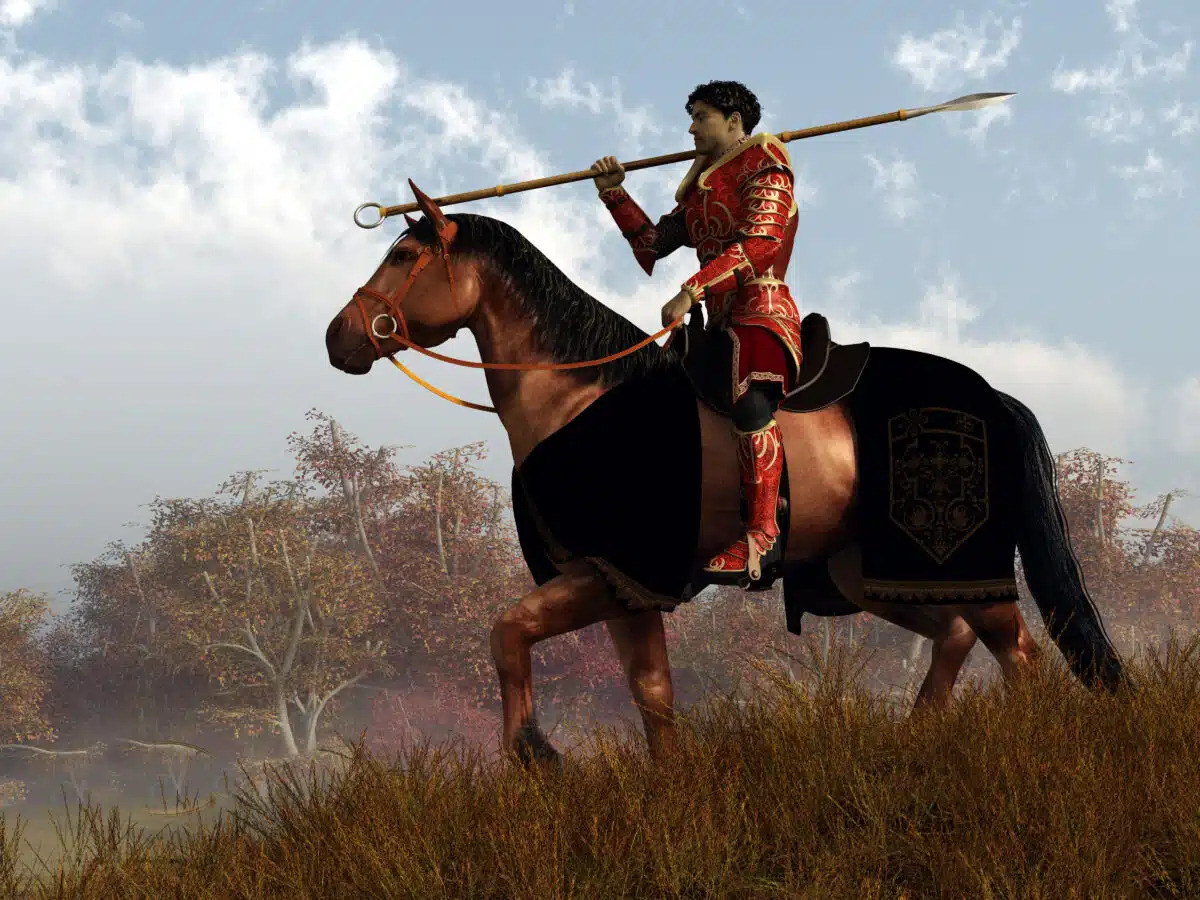
“The King Of Our Republic” by Henry Lawson
He is coming! He is coming! without heralds, without cheers.
He is coming! He is coming! and he’s been with us for years:
And, if you should pause to wonder who’s the man of whom I sing
’Tis the King of our Republic, and the man we shall call King.
No, he comes not to amuse us, and he comes not to explain,
With the bathos of the old things over all the land again.
The debatable and tangled, and the vain imagining
Shall be swept out of our pathway by the man that we’ll call King.
He is coming! He is coming! He has heard our spirit call;
He’ll be greatest man since Cromwell in the English nations all,
And he’ll take his place amongst us while the rest are wondering
Shall the King of our Republic, and the man we will call King.
If you find him stern, unyielding, where his living task is set,
I have told you that a tyrant shall uplift the nation yet;
He will place his country’s welfare over all and everything,
Shall the King of our Republic, and the man that we’ll call King.
Yet his heart shall still be gentle with his brothers gone astray,
For the Great Man of Australia shall be simple in his day
Modest, kindly, but unyielding, while the watching world shall ring
With the name of our Republic and the man that we call King.
“The King” by James Whitcomb Riley
They rode right out of the morning sun–
A glimmering, glittering cavalcade
Of knights and ladies and every one
In princely sheen arrayed;
And the king of them all, O he rode ahead,
With a helmet of gold, and a plume of red
That spurted about in the breeze and bled
In the bloom of the everglade.
And they rode high over the dewy lawn,
With brave, glad banners of every hue
That rolled in ripples, as they rode on
In splendor, two and two;
And the tinkling links of the golden reins
Of the steeds they rode rang such refrains
As the castanets in a dream of Spain’s
Intensest gold and blue.
And they rode and rode; and the steeds they neighed
And pranced, and the sun on their glossy hides
Flickered and lightened and glanced and played
Like the moon on rippling tides;
And their manes were silken, and thick and strong,
And their tails were flossy, and fetlock-long,
And jostled in time to the teeming throng,
And their knightly song besides.
Clank of scabbard and jingle of spur,
And the fluttering sash of the queen went wild
In the wind, and the proud king glanced at her
As one at a wilful child–,
And as knight and lady away they flew,
And the banners flapped, and the falcon too,
And the lances flashed and the bugle blew,
He kissed his hand and smiled.
And then, like a slanting sunlit shower,
The pageant glittered across the plain,
And the turf spun back, and the wildweed flower
Was only a crimson stain.
And a dreamer’s eyes they are downward cast,
As he blends these words with the wailing blast:
“It is the King of the Year rides past!”
And Autumn is here again.
“King Arthur’s Men Have Come Again” by Vachel Lindsay
KING ARTHUR’S men have come again.
They challenge everywhere
The foes of Christ’s Eternal Church.
Her incense crowns the air.
The heathen knighthood cower and curse
To hear the bugles ring,
BUT SPEARS ARE SET, THE CHARGE IS ON,
WISE ARTHUR SHALL BE KING!
And Cromwell’s men have come again,
I meet them in the street.
Stern but in this—no way of thorns
Shall snare the children’s feet.
The reveling foemen wreak but waste,
A sodden poisonous band.
FIERCE CROMWELL BUILDS THE FLOWER-BRIGHT TOWNS,
AND A MORE SUNLIT LAND!
And Lincoln’s men have come again.
Up from the south he flayed,
The grandsons of his foes arise
In his own cause arrayed.
They rise for freedom and clean laws
High laws, that shall endure.
OUR GOD ESTABLISHES HIS ARM
AND MAKES THE BATTLE SURE!
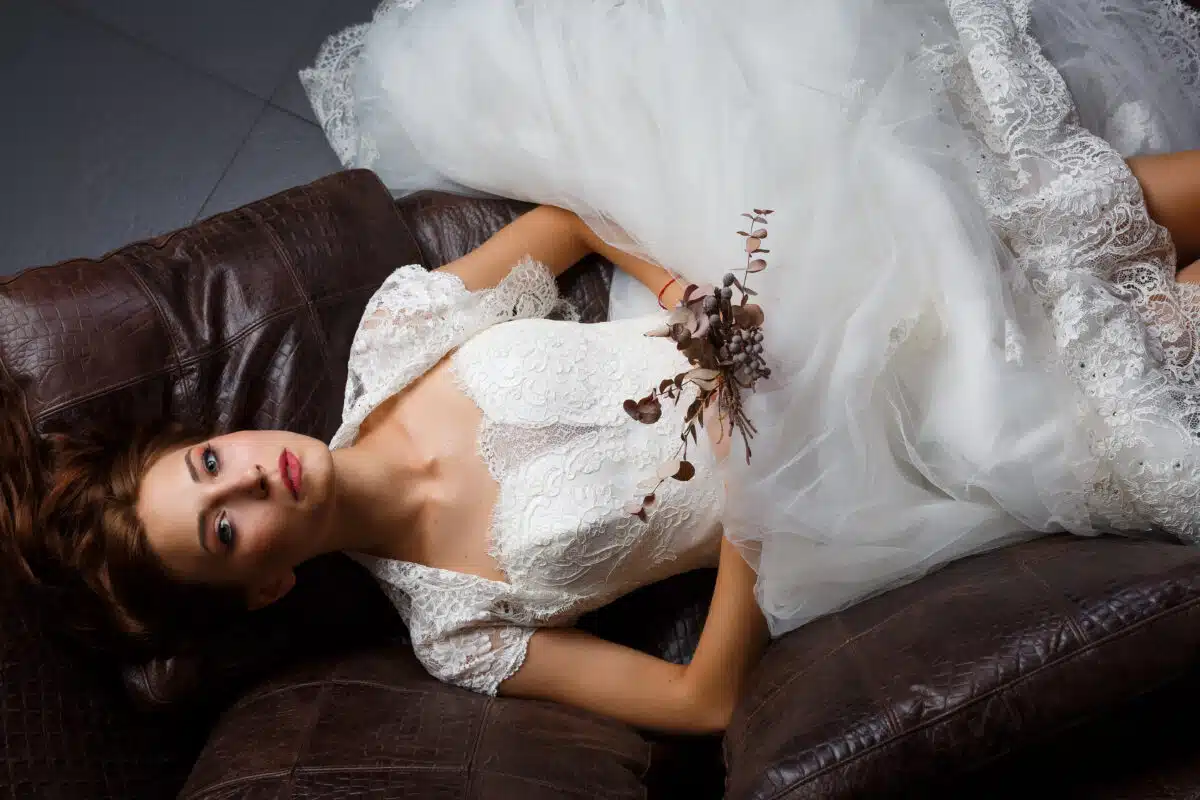
“The King Is Dead” by Paul Laurence Dunbar
Aye, lay him in his grave, the old dead year!
His life is lived—fulfilled his destiny.
Have you for him no sad, regretful tear
To drop beside the cold, unfollowed bier?
Can you not pay the tribute of a sigh?
Was he not kind to you, this dead old year?
Did he not give enough of earthly store?
Enough of love, and laughter, and good cheer?
Have not the skies you scanned sometimes been clear?
How, then, of him who dies, could you ask more?
It is not well to hate him for the pain
He brought you, and the sorrows manifold.
To pardon him these hurts still I am fain;
For in the panting period of his reign,
He brought me new wounds, but he healed the old.
One little sigh for thee, my poor, dead friend—
One little sigh while my companions sing.
Thou art so soon forgotten in the end;
We cry e’en as thy footsteps downward tend:
“The king is dead! long live the king!”
“The King Of Thule” by Johann Wolfgang von Goethe
In Thule lived a monarch,
Still faithful to the grave,
To whom his dying mistress
A golden goblet gave.
Beyond all price he deem’d it,
He quaff’d it at each feast;
And, when he drain’d that goblet,
His tears to flow ne’er ceas’d.
And when he felt death near him,
His cities o’er he told,
And to his heir left all things,
But not that cup of gold.
A regal banquet held he
In his ancestral ball,
In yonder sea-wash’d castle,
‘Mongst his great nobles all.
There stood the aged reveller,
And drank his last life’s-glow,–
Then hurl’d the holy goblet
Into the flood below.
He saw it falling, filling,
And sinking ‘neath the main,
His eyes then closed for ever,
He never drank again.
“King Witlaf’s Drinking-Horn” by Henry Wadsworth Longfellow
Witlaf, a king of the Saxons,
Ere yet his last he breathed,
To the merry monks of Croyland
His drinking-horn bequeathed,–
That, whenever they sat at their revels,
And drank from the golden bowl,
They might remember the donor,
And breathe a prayer for his soul.
So sat they once at Christmas,
And bade the goblet pass;
In their beards the red wine glistened
Like dew-drops in the grass.
They drank to the soul of Witlaf,
They drank to Christ the Lord,
And to each of the Twelve Apostles,
Who had preached his holy word.
They drank to the Saints and Martyrs
Of the dismal days of yore,
And as soon as the horn was empty
They remembered one Saint more.
And the reader droned from the pulpit
Like the murmur of many bees,
The legend of good Saint Guthlac,
And Saint Basil’s homilies;
Till the great bells of the convent,
From their prison in the tower,
Guthlac and Bartholomaeus,
Proclaimed the midnight hour.
And the Yule-log cracked in the chimney,
And the Abbot bowed his head,
And the flamelets flapped and flickered,
But the Abbot was stark and dead.
Yet still in his pallid fingers
He clutched the golden bowl,
In which, like a pearl dissolving,
Had sunk and dissolved his soul.
But not for this their revels
The jovial monks forbore,
For they cried, “Fill high the goblet!
We must drink to one Saint more!”
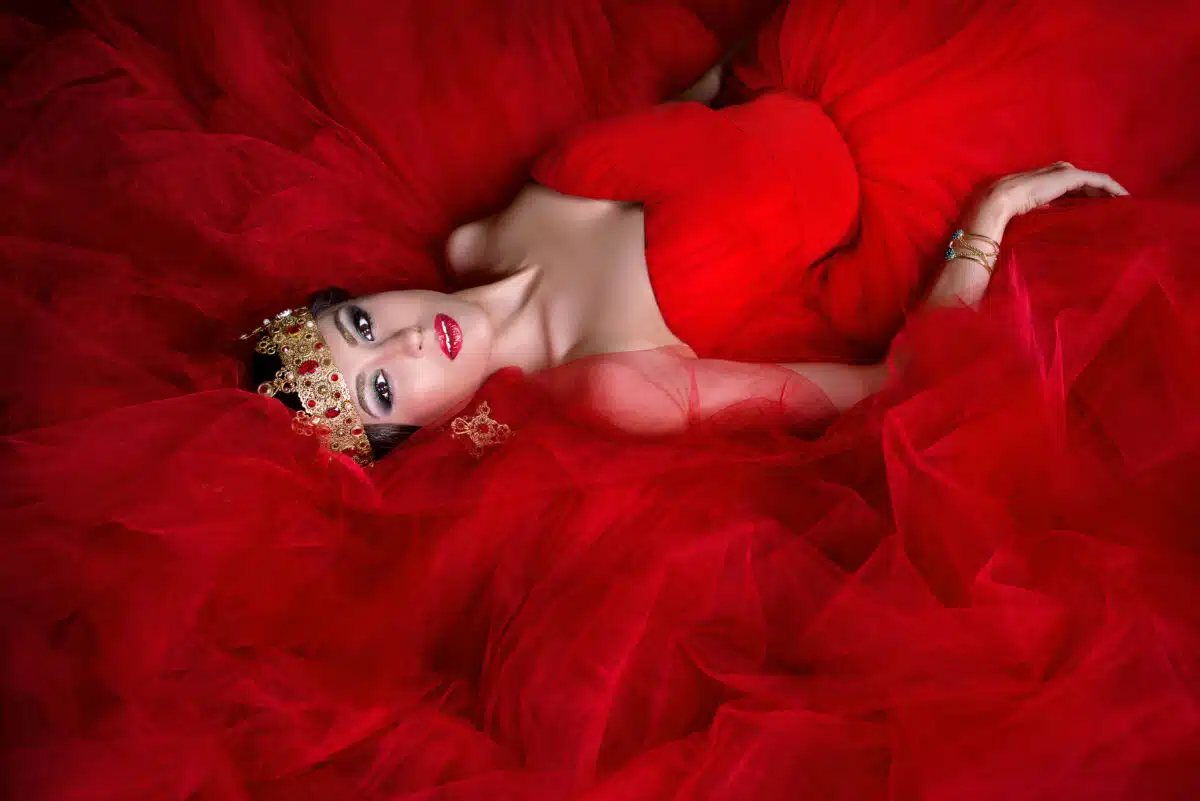
“The King’s Experiment” by Thomas Hardy
It was a wet wan hour in spring,
And Nature met King Doom beside a lane,
Wherein Hodge trudged, all blithely ballading
The Mother’s smiling reign.
“Why warbles he that skies are fair
And coombs alight,” she cried, “and fallows gay,
When I have placed no sunshine in the air
Or glow on earth to-day?”
“‘Tis in the comedy of things
That such should be,” returned the one of Doom;
“Charge now the scene with brightest blazonings,
And he shall call them gloom.”
She gave the word: the sun outbroke,
All Froomside shone, the hedgebirds raised a song;
And later Hodge, upon the midday stroke,
Returned the lane along,
Low murmuring: “O this bitter scene,
And thrice accurst horizon hung with gloom!
How deadly like this sky, these fields, these treen,
To trappings of the tomb!”
The Beldame then: “The fool and blind!
Such mad perverseness who may apprehend?” –
“Nay; there’s no madness in it; thou shalt find
Thy law there,” said her friend.
“When Hodge went forth ’twas to his Love,
To make her, ere this eve, his wedded prize,
And Earth, despite the heaviness above,
Was bright as Paradise.
“But I sent on my messenger,
With cunning arrows poisonous and keen,
To take forthwith her laughing life from her,
And dull her little een,
“And white her cheek, and still her breath,
Ere her too buoyant Hodge had reached her side;
So, when he came, he clasped her but in death,
And never as his bride.
“And there’s the humour, as I said;
Thy dreary dawn he saw as gleaming gold,
And in thy glistening green and radiant red
Funereal gloom and cold.”
From “The Kings and Queens of England” by Mary Ann H. T. Bigelow
First, William the Norman lays claim to the crown
And retains it till death; then follows his son
The red headed William, whose life is cut short
By a shot from his friend, when hunting for sport.
Then Henry his brother takes quiet possession,
As Henry the first, of the great English nation.
Next Stephen, a kinsman gets the crown by his might,
But no one pretends to say he had a right.
Then comes Hal the second, who cuts a great figure
With Becket, fair Rosamond and Queen Eliner.
The Lion-hearted Richard, first of that name,
Succeeded his father in power and in fame;
He joined the Crusade to a far distant land
But his life was cut short by a murderous hand.
Next comes the cruel and cowardly John,
From whose hand, reluctant, Magna Charta was won.
Then his son Henry third, deny it who can?
Though unfit for a King, was yet a good man,
And his reign though a long one of fifty-six years
Was full of perplexities, sorrows, and fears.
His son Edward first next governs the nation,
Much respected and feared, in holding that station.
The Principality of Wales was annexed in his reign,
And his son Edward second, first Prince of that name.
But what shall I say of King Edward the third,
The most remarkable reign, that yet had occurred;
Fire arms in the war, were first used in his reign,
And the battle of Cressy of great note and fame,
To their introduction has the right to lay claim.
The knights of the Garter, first made in his reign
In honor it seems of a fair English dame,
The Duchess of Salisbury to whom it is said,
From Edward peculiar attentions were paid.
Beautiful Queen Poems
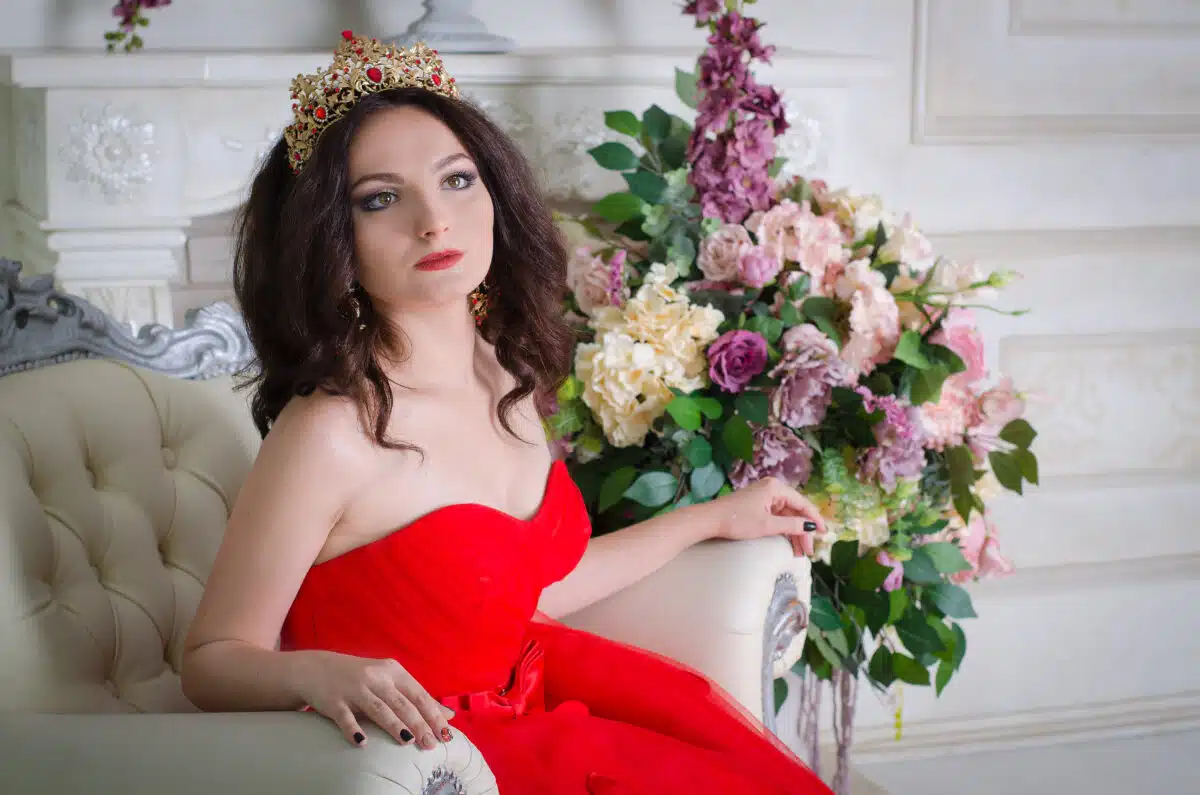
“Queen Djenira” by Walter De La Mare
When Queen Djenira slumbers through
The sultry noon’s repose,
From out her dreams, as soft she lies,
A faint thin music flows.
Her lovely hands lie narrow and pale
With gilded nails, her head
Couched in its banded nets of gold
Lies pillowed on her bed.
The little Nubian boys who fan
Her cheeks and tresses clear,
Wonderful, wonderful, wonderful voices
Seem afar to hear.
They slide their eyes, and nodding, say,
“Queen Djenira walks to-day
The courts of the lord Pthamasar
Where the sweet birds of Psuthys are.”
And those of earth about her porch
Of shadow cool and grey
Their sidelong beaks in silence lean,
And silent flit away.
“The Queen of Bubbles” by Vachel Lindsay
The Youth speaks: –
“Why do you seek the sun
In your bubble-crown ascending?
Your chariot will melt to mist.
Your crown will have an ending.”
The Goddess replies:-
“Nay, sun is but a bubble,
Earth is a whiff of foam-
To my caves on the coast of Thule
Each night I call them home.
Thence Faiths blow forth to angels
And loves blow forth to men-
They break and turn to nothing
And I make them whole again.
On the crested waves of chaos
I ride them back reborn:
New stars I bring at evening
For those that burst at morn:
My soul is the wind of Thule
And evening is the sign-
The sun is but a bubble,
A fragile child of mine.”
From “Queen Mab in the Village” by Vachel Lindsay
Once I loved a fairy,
Queen Mab it was. Her voice
Was like a little Fountain
That bids the birds rejoice.
Her face was wise and solemn,
Her hair was brown and fine.
Her dress was pansy velvet,
A butterfly design.
To see her hover round me
Or walk the hills of air,
Awakened love’s deep pulses
And boyhood’s first despair;
A passion like a sword-blade
That pierced me thro’ and thro’:
Her fingers healed the sorrow
Her whisper would renew.
We sighed and reigned and feasted
Within a hollow tree,
We vowed our love was boundless,
Eternal as the sea.
She banished from her kingdom
The mortal boy I grew —
So tall and crude and noisy,
I killed grasshoppers too.
I threw big rocks at pigeons,
I plucked and tore apart
The weeping, wailing daisies,
And broke my lady’s heart.
At length I grew to manhood,
I scarcely could believe
I ever loved the lady,
Or caused her court to grieve,
Until a dream came to me,
One bleak first night of Spring,
Ere tides of apple blossoms
Rolled in o’er everything,
While rain and sleet and snowbanks
Were still a-vexing men,
Ere robin and his comrades
Were nesting once again.

“The Queen-Rose. A Summer Idyl.” by Fannie Isabelle Sherrick
The sunlight fell with a golden gleam
On the waves of the rippling rill;
The pansies nodded their purple heads;
But the proud queen-rose stood still.
She loved the light and she loved the sun,
And the peaceful night when the day was done,
But the faithless sun in his careless way
Had broken her heart on that summer’s day.
She had bathed her soul in his warm sweet, rays,
She had given her life to him;
And her crimson heart–it was his alone–
Of love it was full to the brim.
But a fairer bud in the garden of love
Had conquered the heart of the king above;
And the proud queen-rose on that summer’s day
Had given a love that was thrown away.
The pansies laughed in the summer breeze,
For they were so happy and free;
And the lilies swayed in the waving grass,
Like sails on an emerald sea.
But the sun glanced down with a mocking light,
And the heart of the rose stood still at the sight,
For never again with its love for him
Would her crimson heart be filled to the brim.
“Ah me!” she sighed, as she drooped her head,
“How vain is my haughty will;
I sought to mate with the sun above,
But lo! I am mortal still.
I envy the pansy that nods at my feet,
For though she is lowly, her life is sweet;
And I envy the lily, for she is glad,
And knows not the longings that make me sad.”
A maiden sat where the pansies grew,
In a golden shower of light;
And she heard the words of the sighing rose,
Borne near in the wind’s swift flight.
“Ah, rose!” she cried, “I am like to you;
There’s never a heart in this world that’s true;
I yielded a love that’s thrown away,
And I’m weary of life on this summer’s day.
“But listen, my rose, and I’ll tell you, sweet,
The lesson I learned to-day;
There’s never a heart in this wide, wide world
That was born to be thrown away.
The sun may smile as he sails away
In the depths of his azure seas for aye;
But the rose that blooms in the garden of love,
Is as fair as the sun to our God above.
“The smallest flower that slakes her thirst
In the dews of the early morn,
Is as great as the stars in heaven above,
The greatest that ever was born.
The love we give on this earth of ours
Is treasured in heaven through all the hours,
And the crimson heart of the proud queen-rose
Is as fair a gem as the earth-land knows.”
The queen-rose listened and held her breath
As the maiden passed her by,
And then, with a grace that was fearless and grand
She lifted her face to the sky.
And never again, when the day was done,
Did she long for the love of the golden sun;
For the lesson she learned on that summer’s day
Lay deep in her heart forever and aye.
“Queen’s Jubilee Ode, 1887.” by James Mcintyre
Canada proves her devotion
To her who rules o’er land and sea,
For loyal thoughts do hearts inspire,
To make more glorious empire.
‘Tis fifty years since Queen was crowned,
Her brow with golden circlet bound,
She was a girl, graceful, fair,
And has felt joy and anxious care.
Happy years of married life
She enjoyed as Albert’s wife,
But Albert died, the wise and good,
And she was left in widowhood.
In her reign the power of steam
On land and sea became supreme,
And all now have strong reliance
In fresh victories of science.
For man doth lightning now employ
And uses it for message boy,
And when he wants a brilliant light,
Electric orbs do shine most bright.
Britain’s empire is extending,
Truth and justice ever blending,
May strife and discord ever cease,
And jubilee inaugurate peace.
“The Prince Imperial” by Fannie Isabelle Sherrick
Under the cross in the Southern skies,
Where the beautiful night like a shadow lies,
A fair young life went out in the light
To wake no more in the star-crowned night.
Beautiful visions of life were his,
Visions of triumph and fame;
Longing for glory that he might be
Worthy to wear his name.
Brave was his heart as he sailed away
Under the Northern sky;
Leaving behind him all that he loved–
Stilling his heart’s wild cry.
Proudly his mother, with royal pride,
Stifled her last regret;
Steeling her heart–but her dream was in vain
For the star of his race was set.
Surely the moon as he slept at night
Whispered his doom on high;
Surely the waves in their rocky beds
Mourned as he passed them by.
For never again in the dusky night
Would the prince go sailing by;
Weaving his dreams with a boyish pride
Under the shadowy sky.
Silent and cold in the morn he lay,
Slain by a ruthless hand!
Never to wake with his fearless eyes–
Never again to command.
Imperial mother–too well we know
The speechless depths of her awful woe;
For the bright young life into Eternity hurled
Was her only like to a sad, dark world.
But mothers kneel in the silent night
To whisper a prayer to the Throne of Light,
For the beautiful woman whose head lies low,
Crushed ‘neath the weight of its crown of woe.
From sun to shadow her life has swayed
Like some wild rose in a mountain glade;
But the storms have won, and the blossom lies
Forever broken–no more to rise.
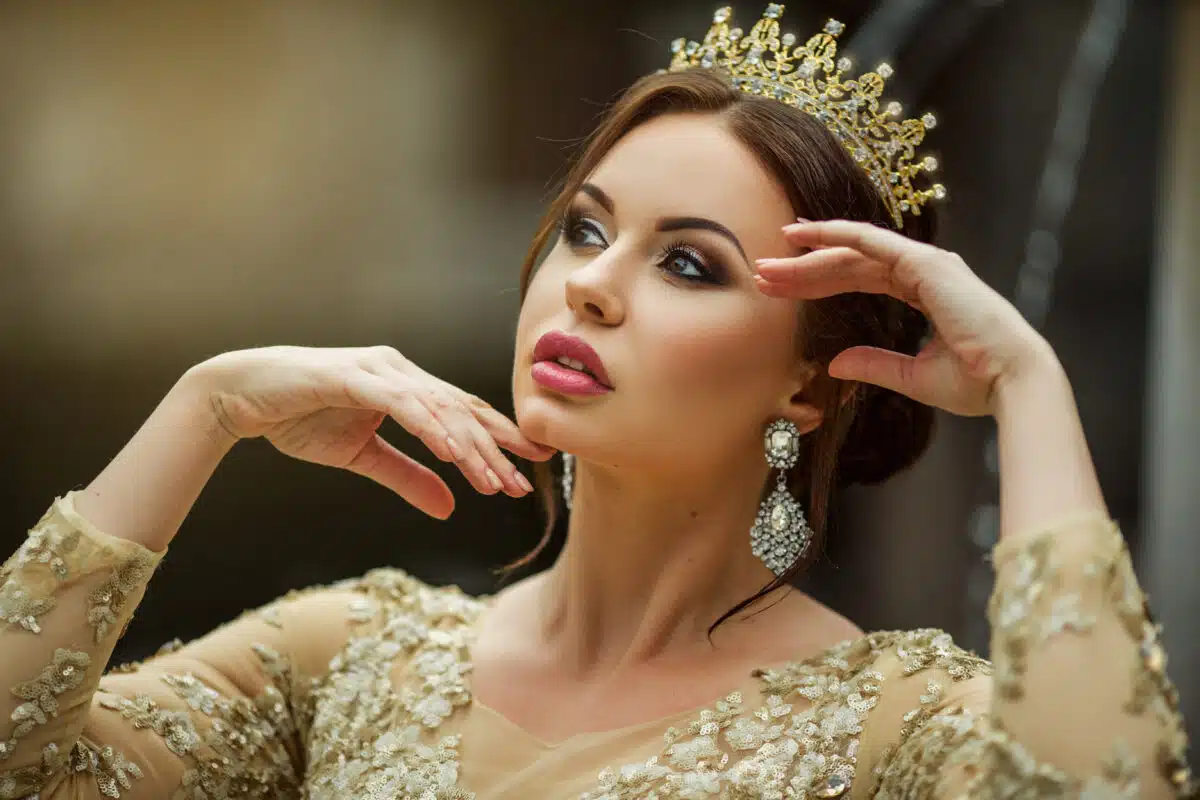
“The Queen’s Song” by James Elroy Flecker
Had I the power
To Midas given of old
To touch a flower
And leave the petals gold
I then might touch thy face,
Delightful boy,
And leave a metal grace,
A graven joy.
Thus would I slay, –
Ah, desperate device!
The vital day
That trembles in thine eyes,
And let the red lips close
Which sang so well,
And drive away the rose
To leave a shell.
Then I myself,
Rising austere and dumb
On the hight shelf
Of my half-lighted room,
Would place the shining bust
And wait alone,
Until I was but dust,
Buried unknown.
Thus in my love
For nations yet unborn,
I would remove
From our two lives the morn,
And muse on loveliness
In mine armchair,
Content should Time confess
How sweet you were.
“O Lord, our Monarch bless” by W. E. Hickson
“O Lord, our Monarch bless,
With strength and righteousness;
Long may she reign!
Her heart inspire and move
With wisdom from above;
And in a nation’s love
Her throne maintain.
May just and righteous laws
Uphold the public cause,
And bless our isle!
Home of the brave and free,
Thou land of liberty,
May Heaven ne’er cease on thee
With love to smile!”
“On Virtue” by Phillis Wheatley
O Thou bright jewel in my aim I strive
To comprehend thee. Thine own words declare
Wisdom is higher than a fool can reach.
I cease to wonder, and no more attempt
Thine height t’ explore, or fathom thy profound.
But, O my soul, sink not into despair,
Virtue is near thee, and with gentle hand
Would now embrace thee, hovers o’er thine head.
Fain would the heav’n-born soul with her converse,
Then seek, then court her for her promis’d bliss.
Auspicious queen, thine heav’nly pinions spread,
And lead celestial Chastity along;
Lo! now her sacred retinue descends,
Array’d in glory from the orbs above.
Attend me, Virtue, thro’ my youthful years!
O leave me not to the false joys of time!
But guide my steps to endless life and bliss.
Greatness, or Goodness, say what I shall call thee,
To give me an higher appellation still,
Teach me a better strain, a nobler lay,
O thou, enthron’d with Cherubs in the realms of day
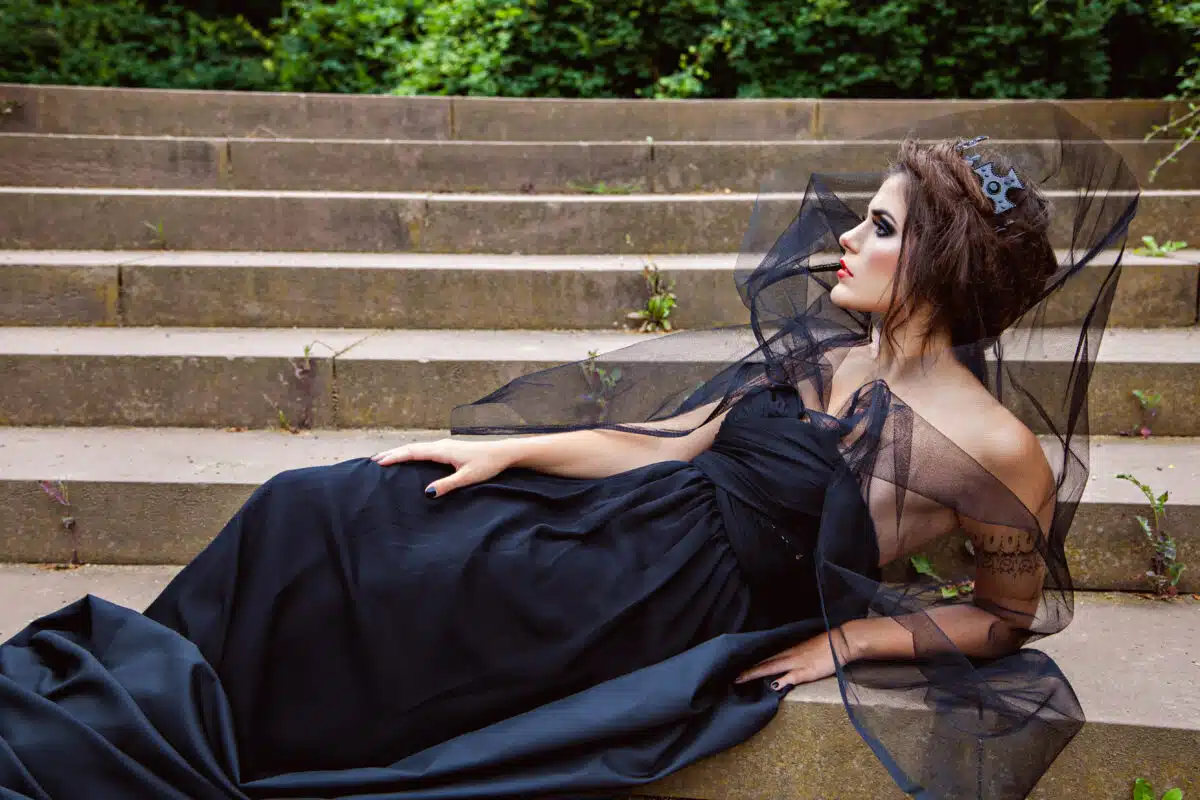
From “A June Song” by Miss Angelina W. Grimké
How shall we crown her bright young head?
Crown it with roses, rare and red;
Crown it with roses, creamy white,
As the lotus bloom that sweetens the night.
Crown it with roses as pink as shell
In which the voices of ocean dwell.
And a fairer queen
Shall ne’er be seen
Than our lovely, laughing June.
“To the Queen” by Alfred, Lord Tennyson
Revered, beloved—O you that hold
A nobler office upon earth
Than arms, or power of brain, or birth
Could give the warrior kings of old,
Victoria,—since your Royal grace
To one of less desert allows
This laurel greener from the brows
Of him that utter’d nothing base;
And should your greatness, and the care
That yokes with empire, yield you time
To make demand of modern rhyme
If aught of ancient worth be there;
Then—while a sweeter music wakes,
And thro’ wild March the throstle calls,
Where all about your palace walls
The sun-lit almond-blossom shakes—
Take, Madam, this poor book of song;
For tho’ the faults were thick as dust
In vacant chambers, I could trust
Your kindness. May you rule us long,
And leave us rulers of your blood
As noble till the latest day!
May children of our children say,
“She wrought her people lasting good;
“Her court was pure, her life serene;
God gave her peace; her land reposed;
A thousand claims to reverence closed
In her as Mother, Wife and Queen;
“And statesmen at her council met
Who knew the seasons when to take
Occasion by the hand, and make
The bounds of freedom wider yet
“By shaping some august decree,
Which kept her throne unshaken still,
Broad-based upon her people’s will,
And compass’d by the inviolate sea.”
From “To The Queen of the Fairies: An Ode” by Thomas Noble
Mab, who driv’st thy tiny team,
Collar’d with a silver beam;
Mistress of the flattering dream,
Hither deign to light!
With a charm of mightiest pow’r,
Gild unsettled slumber’s hour ;
O! dispel the sprites that low’r
O’er my vision’d sight !
Steal, O steal from LUCIA’s lip
Nectar’d dew that Cupids sip ;
And thy charm then softly dip
In her love-fraught eye :
From her cheek, with gentle stealth,
Take those gifts of joy and health,
Beauty’s pride and Cupid’s wealth,
That with rubies vie !
And one sigh of purest air,
That, which heaves my hopes to share ;
And one ringlet of her hair,
That, that shades her brow.
Search her heart, there is a thought,
One that once I almost caught
Rising to her lips-love-fraught
Bring that stifled yow!
And as with thy elfish train,
Thou dost amble through my brain,
On Imagination’s plain,
Prove thy magic might, –
While, to aid thy potent charm ,
Bacchus, too, shall lend his arm,-
Free from care, in ivy’d calm,
I’ll laugh with Love all night!
Rhyming Poems About Kings

“King Goodheart” by William Schwenck Gilbert
There lived a King, as I’ve been told
In the wonder-working days of old,
When hearts were twice as good as gold,
And twenty times as mellow.
Good temper triumphed in his face,
And in his heart he found a place
For all the erring human race
And every wretched fellow.
When he had Rhenish wine to drink
It made him very sad to think
That some, at junket or at jink,
Must be content with toddy:
He wished all men as rich as he
(And he was rich as rich could be),
So to the top of every tree
Promoted everybody.
Ambassadors cropped up like hay,
Prime Ministers and such as they
Grew like asparagus in May,
And Dukes were three a penny:
Lord Chancellors were cheap as sprats,
And Bishops in their shovel hats
Were plentiful as tabby cats –
If possible, too many.
On every side Field-Marshals gleamed,
Small beer were Lords-Lieutenants deemed,
With Admirals the ocean teemed,
All round his wide dominions;
And Party Leaders you might meet
In twos and threes in every street
Maintaining, with no little heat,
Their various opinions.
That King, although no one denies,
His heart was of abnormal size,
Yet he’d have acted otherwise
If he had been acuter.
The end is easily foretold,
When every blessed thing you hold
Is made of silver, or of gold,
You long for simple pewter.
When you have nothing else to wear
But cloth of gold and satins rare,
For cloth of gold you cease to care –
Up goes the price of shoddy:
In short, whoever you may be,
To this conclusion you’ll agree,
When every one is somebody,
Then no one’s anybody!
From “The Faerie Queene” by Edmund Spenser
XXIII
He in the first flowre of my freshest age,
Betrothed me unto the onely haire
Of a most mighty king, most rich and sage;
Was never Prince so faithfull and so faire,
Was never Prince so meeke and debonaire;
But ere my hoped day of spousall shone,
My dearest Lord fell from high honours staire
Into the hands of his accursed fone,
And cruelly was slaine, that shall I ever mone.
“The King Initiate” by George William Russell
Age after age the world has wept
A joy supreme–I saw the hands
Whose fiery radiations swept
And burned away his earthly bands:
And where they smote the living dyes
Flashed like the plumes of paradise.
Their joys the heavy nations hush–
A form of purple glory rose
Crowned with such rays of light as flush
The white peaks on their towering snows:
It held the magic wand that gave
Rule over earth, air, fire and wave.
What sorrow makes the white cheeks wet:
The mystic cross looms shadowy dim–
There where the fourfold powers have met
And poured their living tides through him,
The Son who hides his radiant crest
To the dark Father’s bosom pressed.
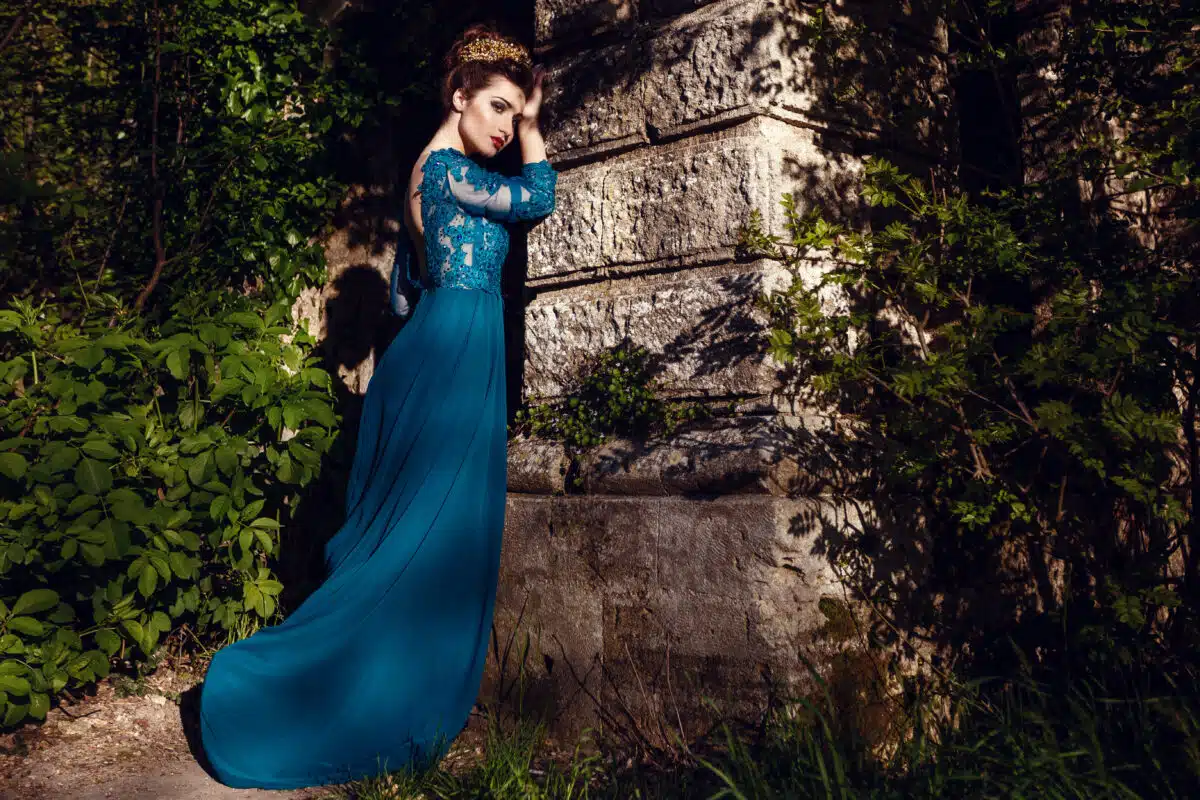
“The King of Yellow Butterflies (A Poem Game.)” by Vachel Lindsay
The King of Yellow Butterflies,
The King of Yellow Butterflies,
The King of Yellow Butterflies,
Now orders forth his men.
He says “The time is almost here
When violets bloom again.”
Adown the road the fickle rout
Goes flashing proud and bold,
Adown the road the fickle rout
Goes flashing proud and bold,
Adown the road the fickle rout
Goes flashing proud and bold,
They shiver by the shallow pools,
They shiver by the shallow pools,
They shiver by the shallow pools,
And whimper of the cold.
They drink and drink. A frail pretense!
They love to pose and preen.
Each pool is but a looking glass,
Where their sweet wings are seen.
Each pool is but a looking glass,
Where their sweet wings are seen.
Each pool is but a looking glass,
Where their sweet wings are seen.
Gentlemen adventurers! Gypsies every whit!
They live on what they steal. Their wings
By briars are frayed a bit.
Their loves are light. They have no house.
And if it rains today,
They’ll climb into your cattle-shed,
They’ll climb into your cattle-shed,
They’ll climb into your cattle-shed,
And hide them in the hay,
And hide them in the hay,
And hide them in the hay,
And hide them in the hay.
“King Solomon and the Ants” by John Greenleaf Whittier
Out from Jerusalem
The king rode with his great
War chiefs and lords of state,
And Sheba’s queen with them.
Proud in the Syrian sun,
In gold and purple sheen,
The dusky Ethiop queen
Smiled on King Solomon.
Wisest of men, he knew
The languages of all
The creatures great or small
That trod the earth or flew.
Across an ant-hill led
The king’s path, and he heard
Its small folk, and their word
He thus interpreted:
“Here comes the king men greet
As wise and good and just,
To crush us in the dust
Under his heedless feet.”
The great king bowed his head,
And saw the wide surprise
Of the Queen of Sheba’s eyes
As he told her what they said.
“O king!” she whispered sweet,
“Too happy fate have they
Who perish in thy way
Beneath thy gracious feet!
“Thou of the God-lent crown,
Shall these vile creatures dare
Murmur against thee where
The knees of kings kneel down?”
“Nay,” Solomon replied,
“The wise and strong should seek
The welfare of the weak;”
And turned his horse aside.
His train, with quick alarm,
Curved with their leader round
The ant-hill’s peopled mound,
And left it free from harm.
The jeweled head bent low;
“O king!” she said, “henceforth
The secret of thy worth
And wisdom well I know.
“Happy must be the State
Whose ruler heedeth more
The murmurs of the poor
Than flatteries of the great.”
“The Kingdom” by Rudyard Kipling
Now we are come to our Kingdom,
And the State is thus and thus;
Our legions wait at the Palace gate,
Little it profits us.
Now we are come to our Kingdom!
Now we are come to our Kingdom,
And the Crown is ours to take,
With a naked sword at the Council board,
And under the throne the snake.
Now we are come to our Kingdom!
Now we are come for our Kingdom,
And the Realm is ours by right,
With shame and fear for our daily cheer,
And heaviness at night.
Now we are come to our Kingdom!
Now we are come to our Kingdom,
But my love’s eyelids fall.
All that I wrought for, all that I fought for,
Delight her nothing at all.
My crown is of withered leaves,
For she sits in the dust and grieves.
Now we are come for our Kingdom!
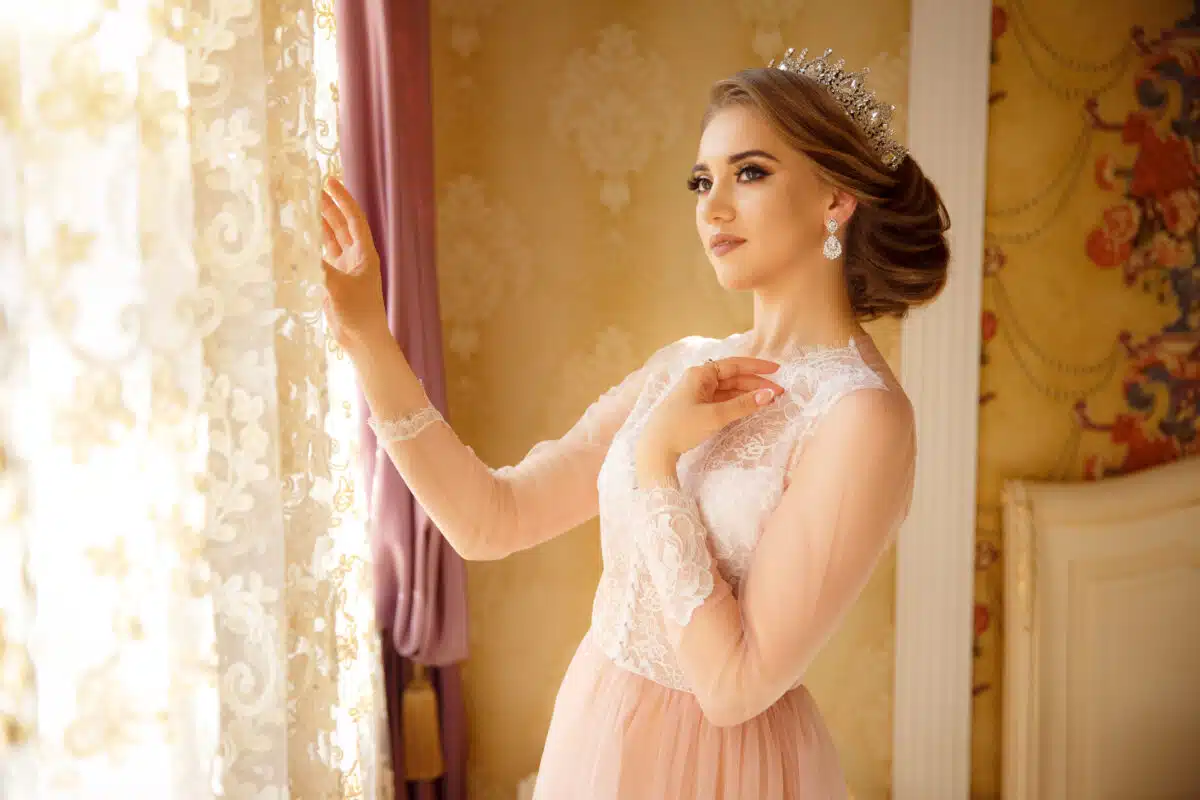
“The King’s Daughter” by Algernon Charles Swinburne
We were ten maidens in the green corn,
Small red leaves in the mill-water:
Fairer maidens never were born,
Apples of gold for the king’s daughter.
We were ten maidens by a well-head,
Small white birds in the mill-water:
Sweeter maidens never were wed,
Rings of red for the king’s daughter.
The first to spin, the second to sing,
Seeds of wheat in the mill-water;
The third may was a goodly thing,
White bread and brown for the king’s daughter.
The fourth to sew and the fifth to play,
Fair green weed in the mill-water;
The sixth may was a goodly may,
White wine and red for the king’s daughter.
The seventh to woo, the eighth to wed,
Fair thin reeds in the mill-water;
The ninth had gold work on her head,
Honey in the comb for the king’s daughter.
The ninth had gold work round her hair,
Fallen flowers in the mill-water;
The tenth may was goodly and fair,
Golden gloves for the king’s daughter.
We were ten maidens in a field green,
Fallen fruit in the mill-water;
Fairer maidens never have been,
Golden sleeves for the king’s daughter.
By there comes the king’s young son,
A little wind in the mill-water;
“Out of ten maidens ye’ll grant me one,”
A crown of red for the king’s daughter.
“Out of ten mays ye’ll give me the best,”
A little rain in the mill-water;
A bed of yellow straw for all the rest,
A bed of gold for the king’s daughter.
He’s ta’en out the goodliest,
Rain that rains in the mill-water;
A comb of yellow shell for all the rest,
A comb of gold for the king’s daughter.
He’s made her bed to the goodliest,
Wind and hail in the mill-water;
A grass girdle for all the rest,
A girdle of arms for the king’s daughter.
He’s set his heart to the goodliest,
Snow that snows in the mill-water;
Nine little kisses for all the rest,
An hundredfold for the king’s daughter.
He’s ta’en his leave at the goodliest,
Broken boats in the mill-water;
Golden gifts for all the rest,
Sorrow of heart for the king’s daughter.
“Ye’ll make a grave for my fair body,”
Running rain in the mill-water;
“And ye’ll streek my brother at the side of me,”
The pains of hell for the king’s daughter.
“The King’s High Way” by William Arthur Dunkerley (John Oxenham)
A wonderful Way is The King’s High Way;
It runs through the Nightlands up to the Day;
From the wonderful WAS, by the wonderful IS,
To the still more wonderful IS TO BE,–
Runs The King’s High Way.
Through the crooked by-ways of history,
Through the times that were dark with mystery,
From the cities of man’s captivity,
By the shed of The Child’s nativity,
And over the hill by the crosses three,
By the sign-post of God’s paternity,
From Yesterday into Eternity,–
Runs The King’s High Way.
And wayfaring men, who have strayed, still say
It is good to travel The King’s High Way.
Through the dim, dark Valley of Death, at times,
To the peak of the Shining Mount it climbs,
While wonders, and glories, and joys untold
To the eyes of the visioned each step unfold,–
On The King’s High Way.
And everywhere there are sheltering bowers,
Plenished with fruits and radiant with flowers,
Where the weary of body and soul may rest,
As the steeps they breast to the beckoning crest,–
On The King’s High Way.
And inns there are too, of comforting mien,
Where every guest is a King or a Queen,
And room never lacks in the inns on that road,
For the hosts are all gentle men, like unto God,–
On The King’s High Way.
The comrades one finds are all bound the same way,
Their faces aglow in the light of the day;
And never a quarrel is heard, nor a brawl,
They’re the best of good company, each one and all,–
On The King’s High Way.
So, gallantly travel The King’s High Way,
With hearts unperturbed and with souls high and gay,
There is many a road that is much more the mode,
But none that so surely leads straight up to God,
As The King’s High Way.
“The King’s Pilgrimage” by Rudyard Kipling
Our King went forth on pilgrimage
His prayers and vows to pay
To them that saved our heritage
And cast their own away.
And there was little show of pride,
Or prows of belted steel,
For the clean-swept oceans every side
Lay free to every keel.
And the first land he found, it was shoal and banky ground,
Where the broader seas begin,
And a pale tide grieving at the broken harbour-mouth
Where they worked the death-ships in.
And there was neither gull on the wing,
Nor wave that could not tell
Of the bodies that were buckled in the life-buoy’s ring
That slid from swell to swell.
All that they had they gave, they gave; and they shall not return,
For these are those that have no grave where any heart may mourn.
And the next land he found, it was low and hollow ground,
Where once the cities stood,
But the man-high thistle had been master of it all,
Or the bulrush by the flood.
And there was neither blade of grass,
Nor lone star in the sky
But shook to see some spirit pass
And took its agony.
And the next land be found, it was bare and hilly round,
Where once the bread-corn grew,
But the fields were cankered and the water was defiled,
And the trees were riven through.
And there was neither paved highway,
Nor secret path in the wood,
But had borne its weight of the broken clay
And darkened ‘neath the blood.
Father and mother they put aside, and the nearer love also,
An hundred thousand men who died whose graves shall no man know.
And the last land he found, it was fair and level ground
About a carven stone,
And a stark Sword brooding on the bosom of the Cross
Where high and low are one.
And there was grass and the living trees,
And the flowers of the spring,
And there lay gentlemen from out of all the seas
That ever called him King.
‘Twixt Nieuport sands and the eastward lands where the Four Red Rivers spring,
Five hundred thousand gentlemen of those that served their King.
All that they had they gave, they gave,
In sure and single faith.
There can no knowledge reach the grave
To make them grudge their death
Save only if they understood
That, after all was done,
We they redeemed denied their blood
And mocked the gains it won.
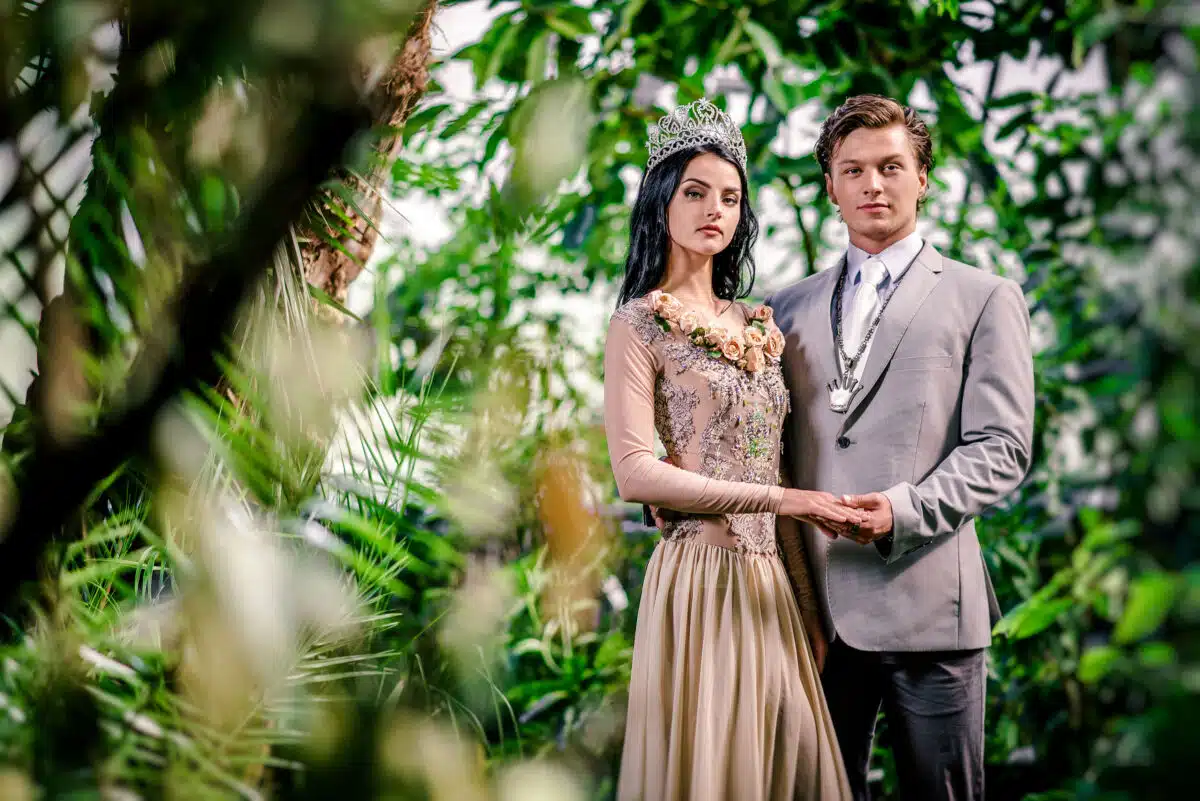
“The King’s Son” by Bliss Carman (William)
“Daughter, daughter, marry no man,
Though a king’s son come to woo,
If he be not more than blessing or ban
To the secret soul of you.”
“‘Tis the King’s son, indeed, I ween,
And he left me even but now,
And he shall make me a dazzling queen,
With a gold crown on my brow.”
“And are you one that a golden crown,
Or the lust of a name can lure?
You had better wed with a country clown,
And keep your young heart pure.”
“Mother, the King has sworn, and said
That his son shall wed but me;
And I must gang to the prince’s bed,
Or a traitor I shall be.”
“Oh, what care you for an old man’s wrath?
Or what care you for a king?
I had rather you fled on an outlaw’s path,
A rebel, a hunted thing.”
“Mother, it is my father’s will,
For the King has promised him fair
A goodly earldom of hollow and hill,
And a coronet to wear.”
“Then woe is worth a father’s name,
For it names your dourest foe!
I had rather you came the child of shame
Than to have you fathered so.”
“Mother, I shall have gold enow,
Though love be never mine,
To buy all else that the world can show
Of good and fair and fine.”
“Oh, what care you for a prince’s gold,
Or the key of a kingdom’s till?
I had rather see you a harlot bold
That sins of her own free will.
“For I have been wife for the stomach’s sake,
And I know whereof I say;
A harlot is sold for a passing slake,
But a wife is sold for aye.
“Body and soul for a lifetime sell,
And the price of the sale shall be
That you shall be harlot and slave as well
Until Death set you free.”
“A King’s Soliloquy” by Thomas Hardy
ON THE NIGHT OF HIS FUNERAL
From the slow march and muffled drum
And crowds distrest,
And book and bell, at length I have come
To my full rest.
A ten years’ rule beneath the sun
Is wound up here,
And what I have done, what left undone,
Figures out clear.
Yet in the estimate of such
It grieves me more
That I by some was loved so much
Than that I bore,
From others, judgment of that hue
Which over-hope
Breeds from a theoretic view
Of regal scope.
For kingly opportunities
Right many have sighed;
How best to bear its devilries
Those learn who have tried!
I have eaten the fat and drunk the sweet,
Lived the life out
From the first greeting glad drum-beat
To the last shout.
What pleasure earth affords to kings
I have enjoyed
Through its long vivid pulse-stirrings
Even till it cloyed.
What days of drudgery, nights of stress
Can cark a throne,
Even one maintained in peacefulness,
I too have known.
And so, I think, could I step back
To life again,
I should prefer the average track
Of average men,
Since, as with them, what kingship would
It cannot do,
Nor to first thoughts however good
Hold itself true.
Something binds hard the royal hand,
As all that be,
And it is That has shaped, has planned
My acts and me.
“King Frederik The Seventh (1863)” by Bjørnstjerne Bjørnson
Our King is bereft of a trusty friend!
And in dismay
We lower our banners and sad attend
On his burial day.
But Denmark, in sorrow most deep thou waitest,
For fallen the life that was warmest, greatest,
And fallen the tower
Of mightiest power.
Bewailing the death of their kingly chief,
Men voice their grief.
For Denmark’s salvation the man was born
Who now is dead.
When banished in youth from the court in scorn,
To his people he fled.
There throve he right well, there grew he together
With peasants and sailors in foul and fair weather,
While fullness of living
Its schooling was giving;
When ready for Denmark was laid the snare,
Then he was there!
Now soon it was plain, he was peasant-skulled
For their tricks; and hence
The traitors’ shrewd schemings were all annulled
By his bit of sense.
He knew but one thing;-what his people thought them,
And therefore in danger he freedom brought them.
The whole was his vision,
He would no scission;
His words were but few, and of these the key:
‘It shall not be!’
He stood by the helm like a sailor good,
In no storm remiss;
Of praise the tribute he never would,
But he shall have
this!
The ship to the North he unswerving directed,-
In storm or in fog, exposed or protected;-
And fear allaying,
All folk were saying:
‘He isn’t so stupid as people tell,
For all goes well!’
‘On deck every man!’ was his last command,
‘There’s storm again!’
When answered the cry from the mast-head: ‘Land!’
Oh, then, just then,
Were loosed from the helm the true hands that were steering,
In death he sank down, while the ship began veeringNo, never veering!
To the course adhering!
Now, Denmark, united, with all thy force
Hold straight his course!
He made it his honor, in line to stand,
No rank to know;
But shoulder to shoulder to lend a hand,
And pride forego.
They gather now fruit of his faithful training:
Well drilled, every man at his post is straining.
The course is steady,
For tried and ready
Is many a helmsman, and all their will
Is ‘Northward still!’
Naught else can they do now, but with good cheer
Hold out they must,
Stand guard in the darkness and have no fear,
In God their trust.
It is sultry and silent, and yearning in sorrow
All breathless they listen and wait for the morrow,-
‘T is time for waiting,
Till, night abating,
The eastern sky reddens and bright dawn speeds
The day of deeds!
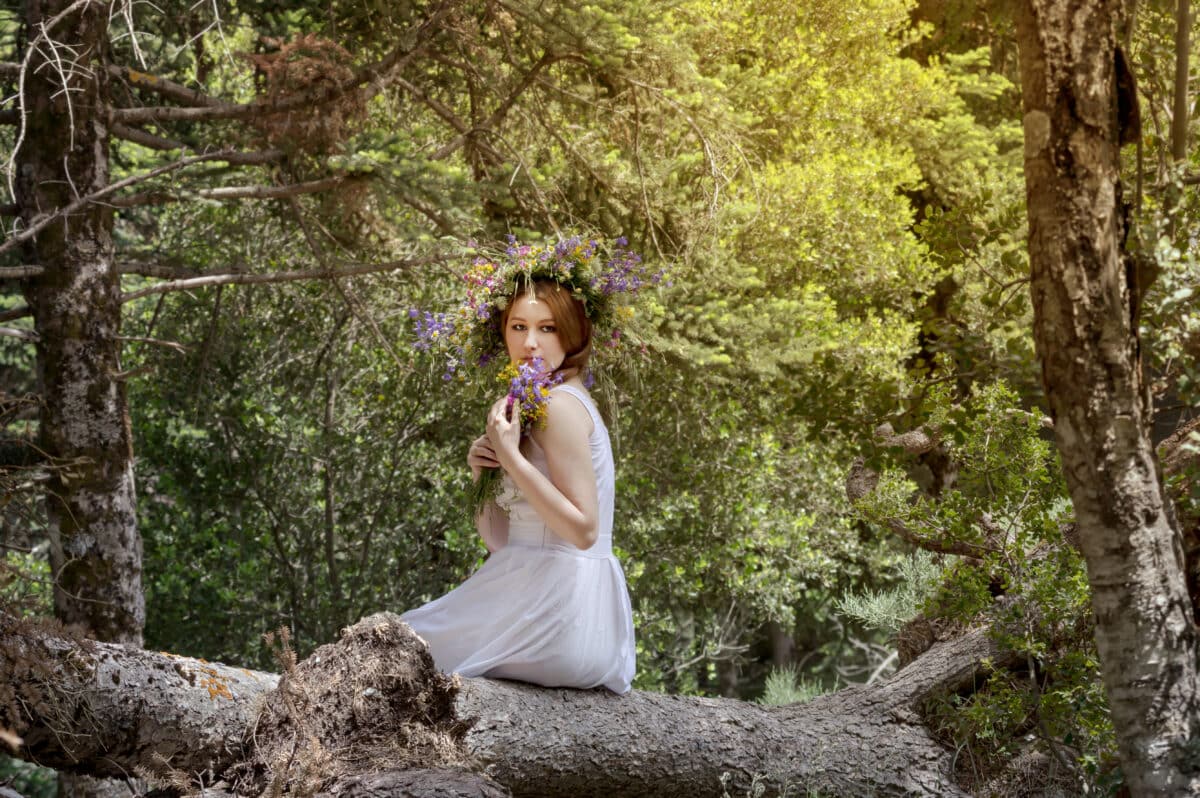
“King Arthur And The Captive Maiden” by John Campbell
King Arthur on a journey went,
His men and he on hunting bent.
Came to the hill for victories known;
He, and Sir Balva, armed alone.
The King of Britain dreamed at night
Of fairest maid ‘neath Heaven’s light.
Her face’s beauteous hues so clear
More than all gold to him were dear.
Yet all unknown where dwelt the maid,
His doubt and awe the search delayed.
For better were a battle stern
Than, blindly wandering, still to yearn.
Then spoke Sir Balva, kindly, meek,
“It is my wish this maid to seek.
Let me now take my Squire and hound,
And search until the maid be found.”
Then seven weeks, with toil and pain,
We travelled wearily the main.
No harbour gave our ship a home,
No land kept off the drifting foam.
But high above the rough sea wave,
We saw a smooth-walled castle brave.
Its gables shone with glass. We laughed,
“Ah many a drink-horn there is quaffed.”
Then sailing to its base there fell
A chain that lashed the ocean swell.
I seized it, fearless, hand o’er hand
I climbed upon the frowning land,
And seated on a golden chair,
I found a maiden wondrous fair,
Holding a mirror on her knee,
Her vesture beautiful to see.
I blest her, whose sad voice replied,
“Grief here thy blessing doth betide.
O comer from the sea, thou’lt feel
The heart of stone, the blade of steel”
Though merciless he be, yet know,
His sword can deal my heart no blow.
His love or hatred I despise
If gained the favour of thine eyes.
“The giant’s star-white sword alone,”
Said she, “can wring from him a groan.
O hide thee in some place secure,
Or, gallant knight, thy death is sure.”
Sir Balva heard the giant roar,
“What wave-thrown stranger climbed our shore?”
Her voice replied, “Now come, nor wait,
My soul, for thee my love is great.
Put thou thy head upon my knee,
I’ll sweetly play the harp to thee.”
He rested, and a laugh displayed
The white teeth of the blue-eyed maid.
The wild harp-music sweetly rung,
And sweeter still her tuneful tongue.
And on his eyes, by sea winds fanned,
Sleep laid full soon his tranquil hand.
Then took they off his star-white sword
And slew the Castle’s Giant Lord.
Thus how the captive maid was found,
Oft heard they of The Table Round.
